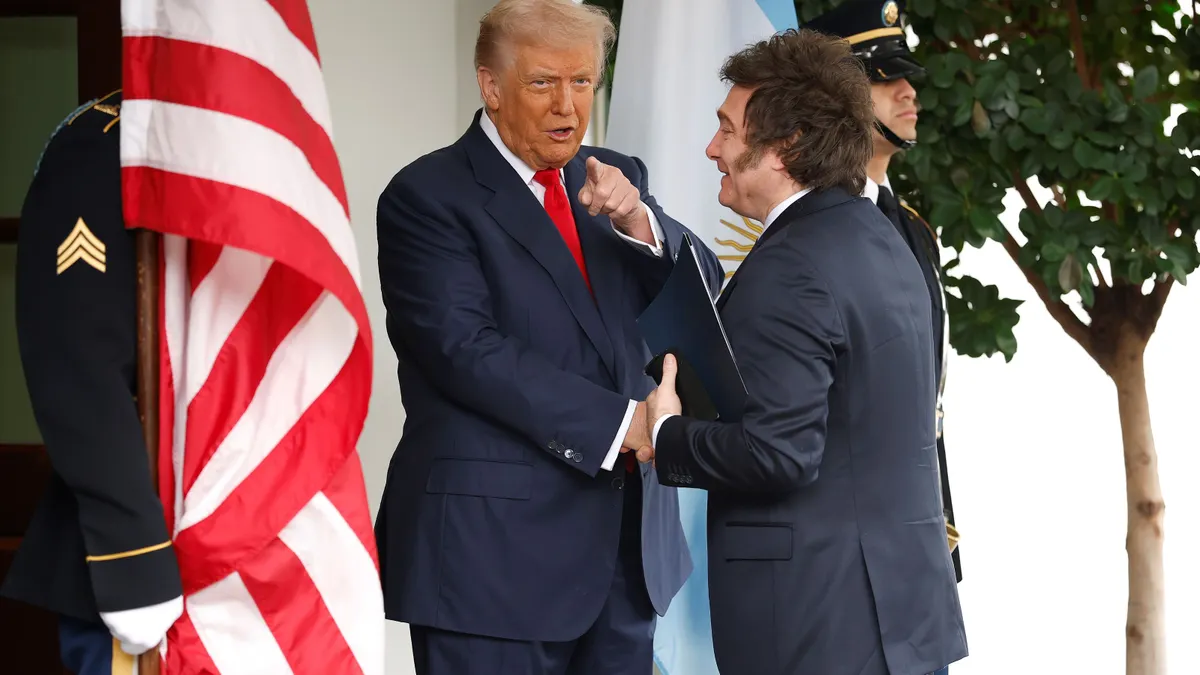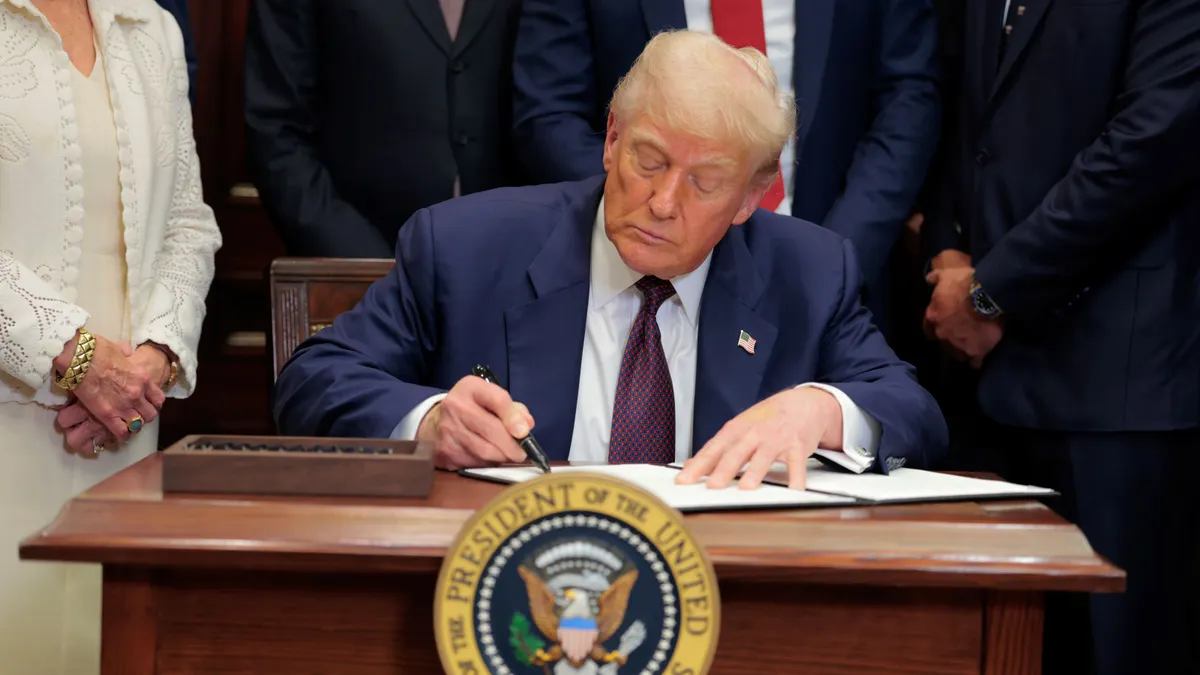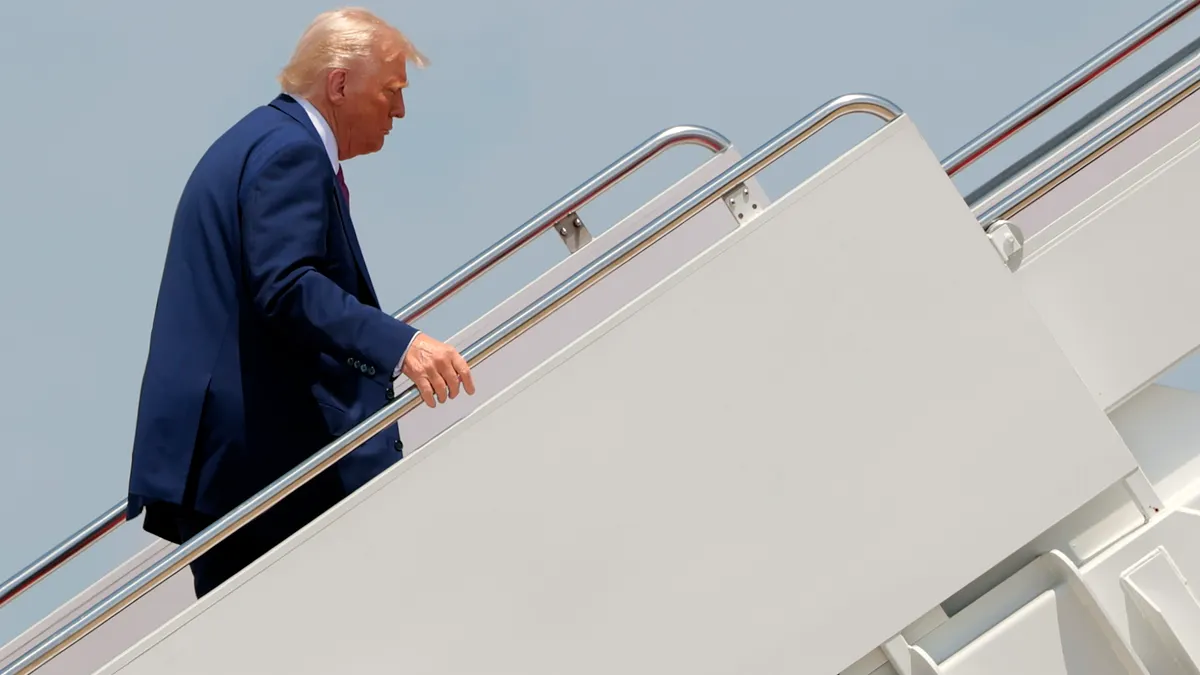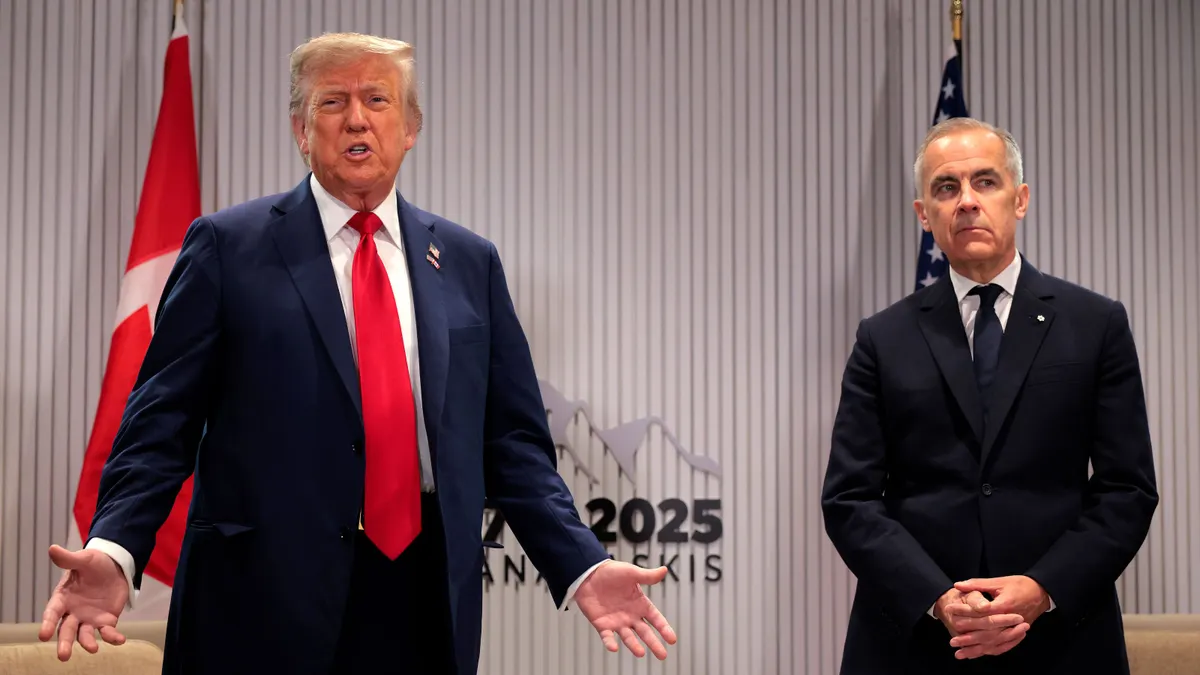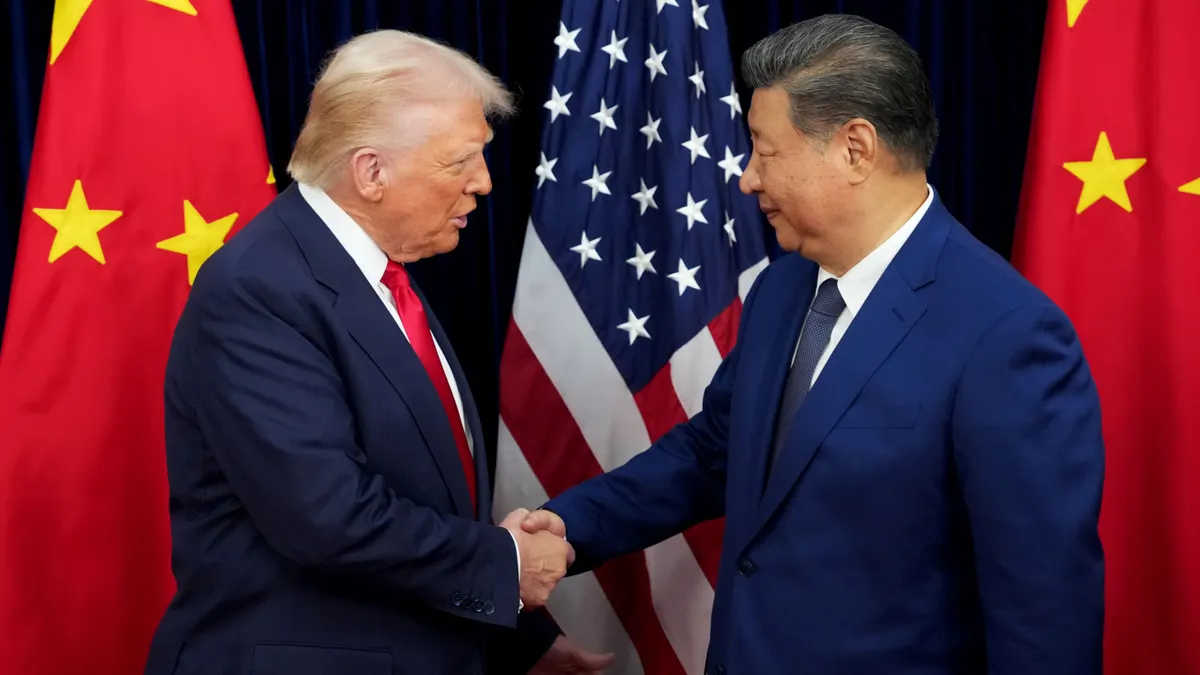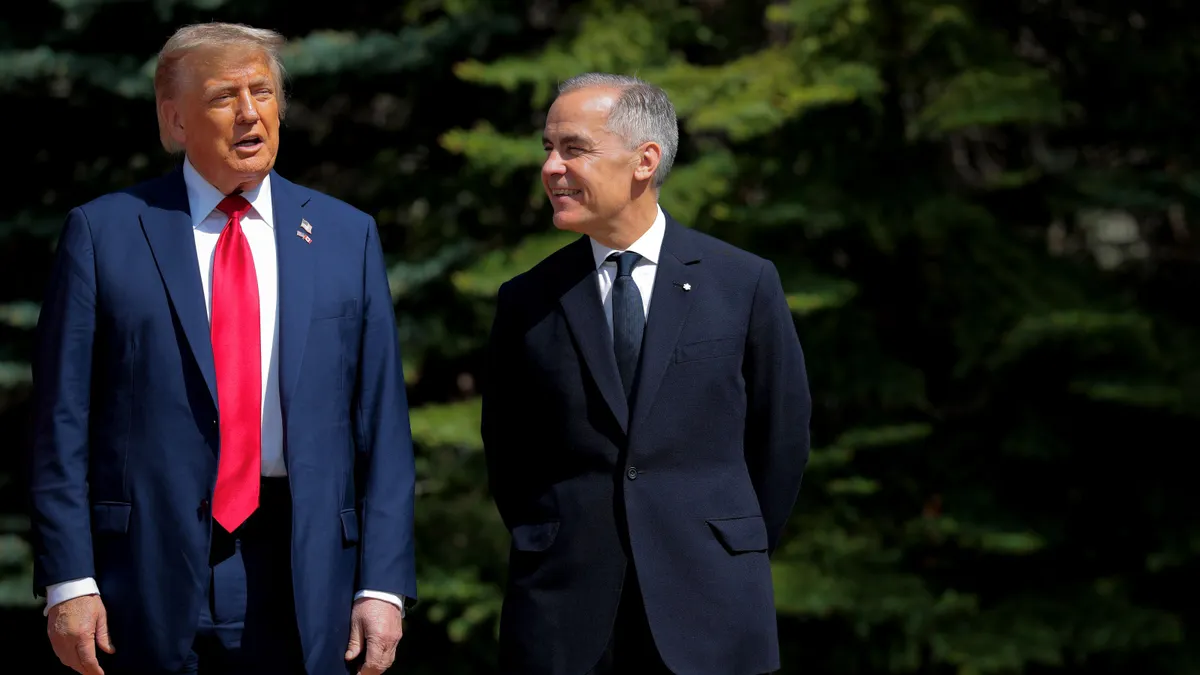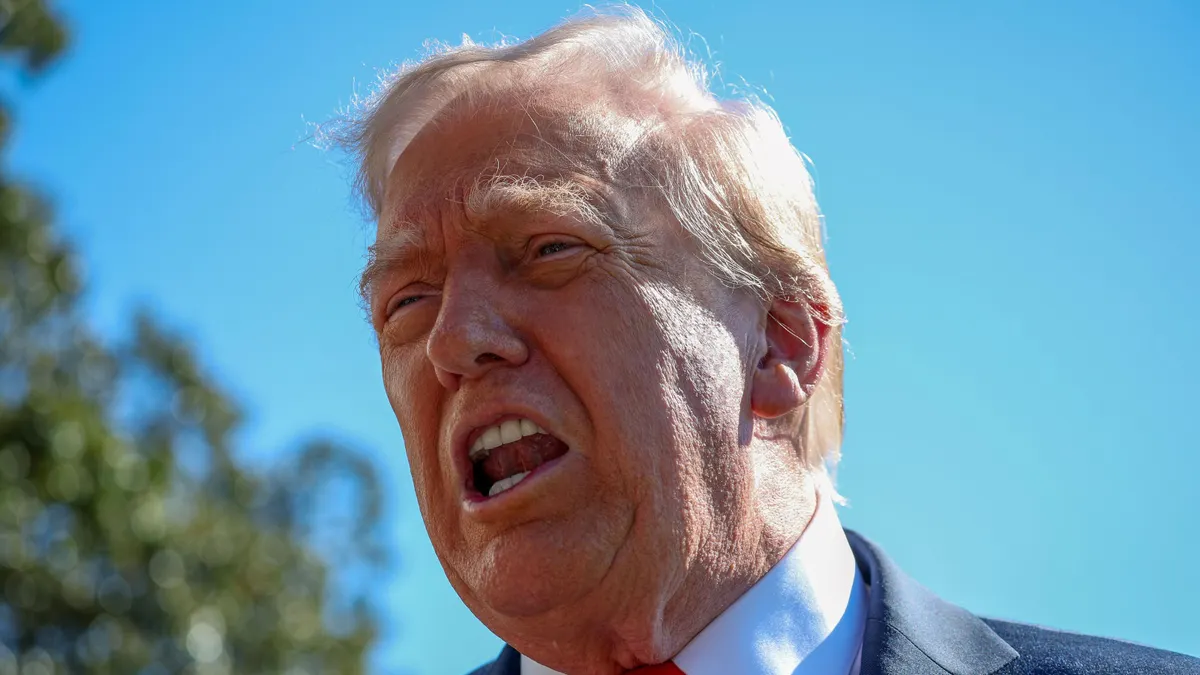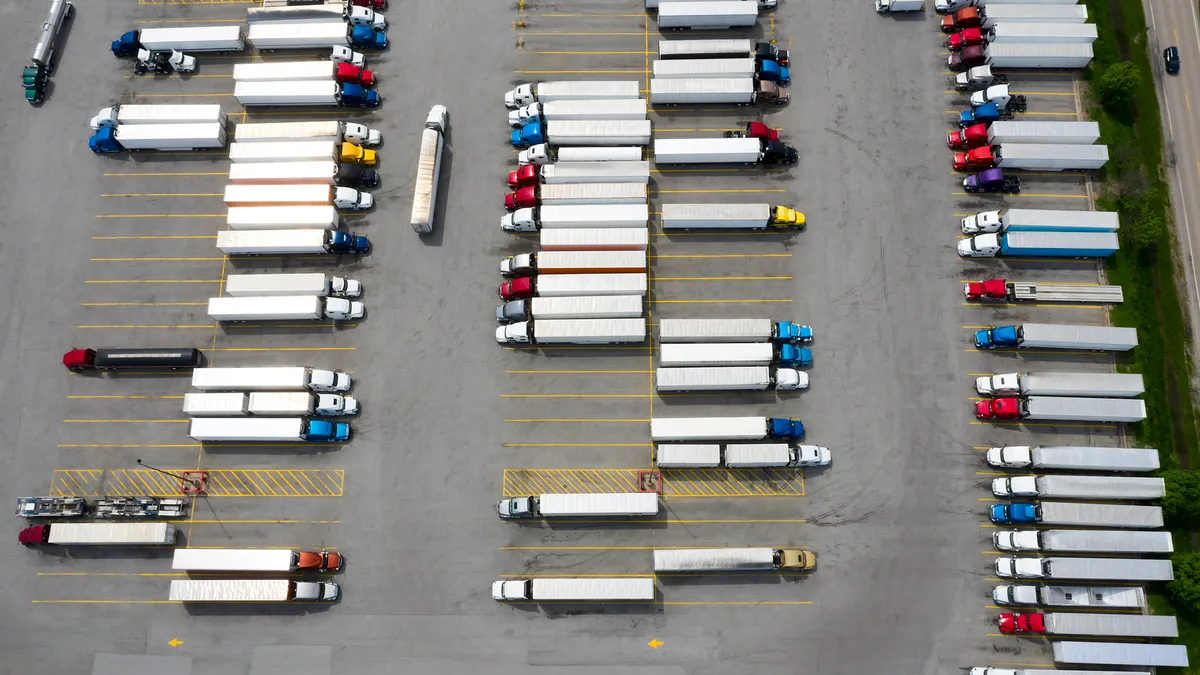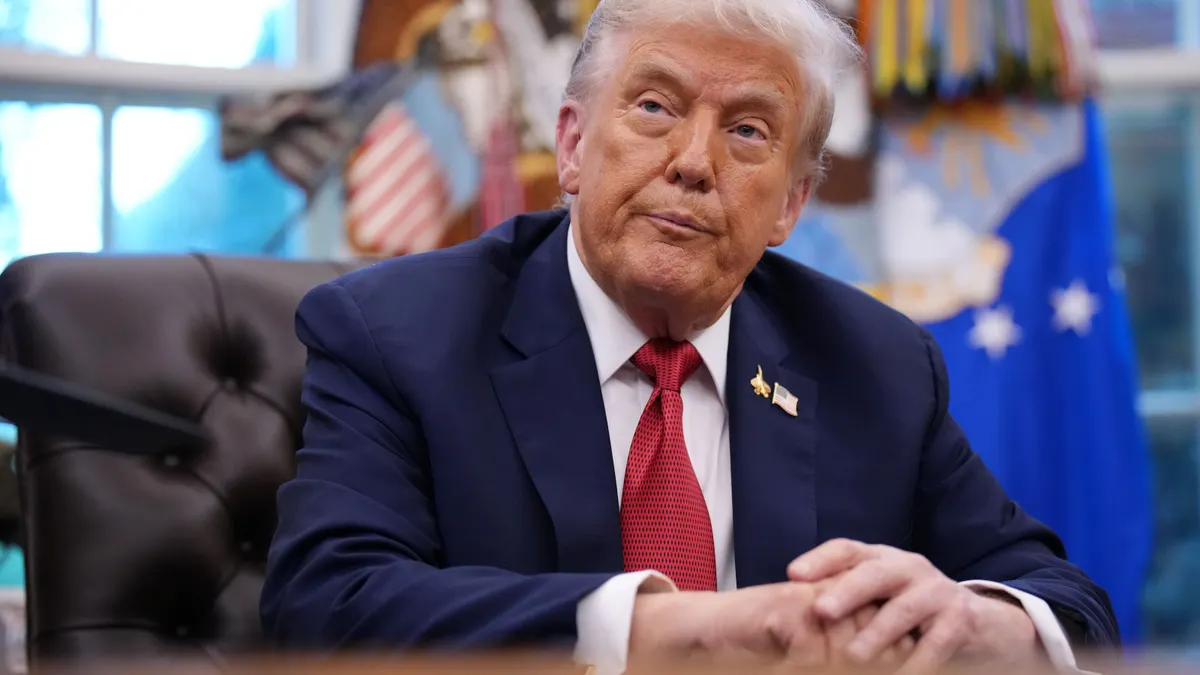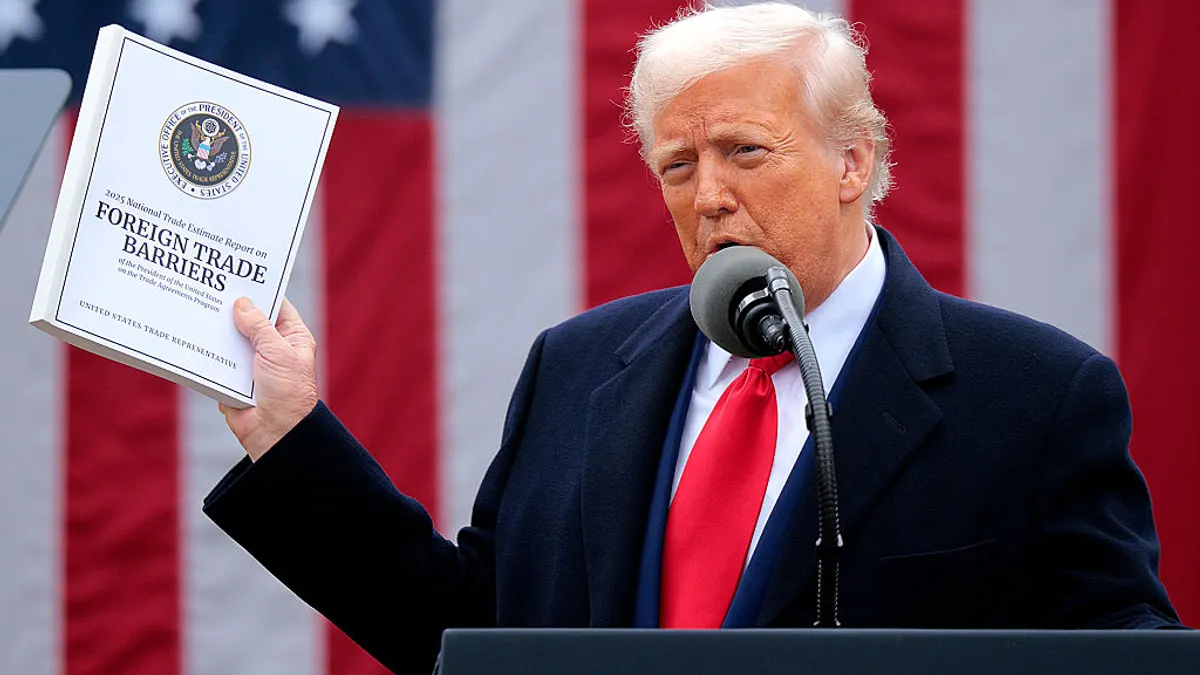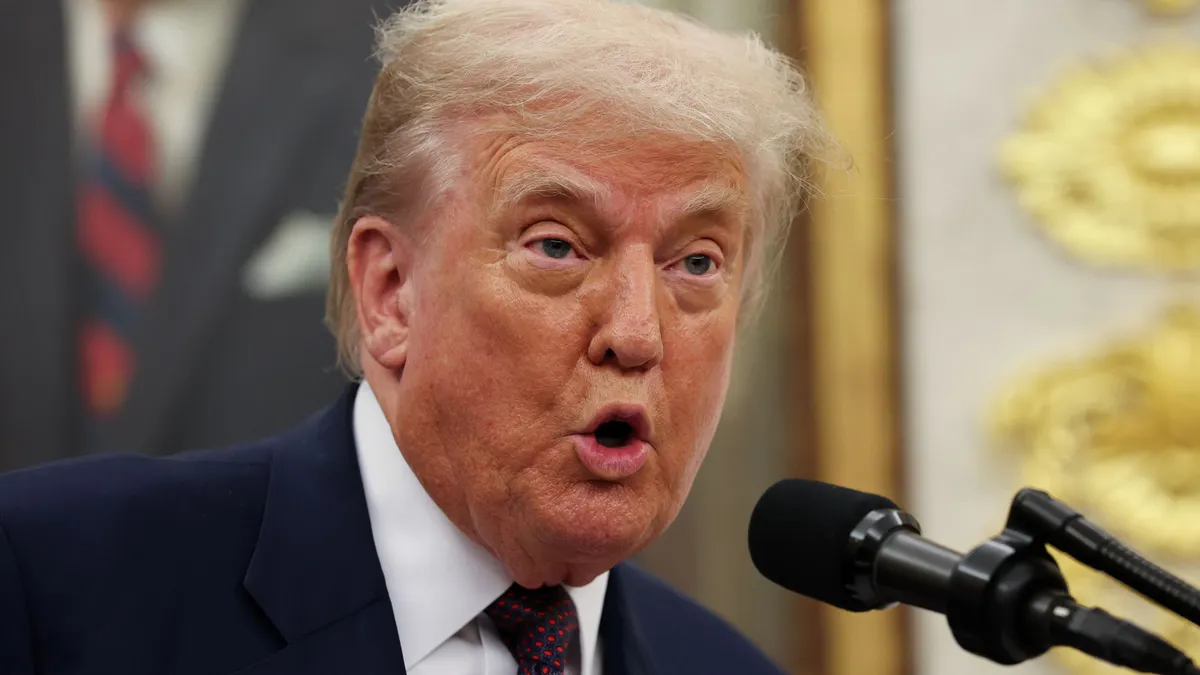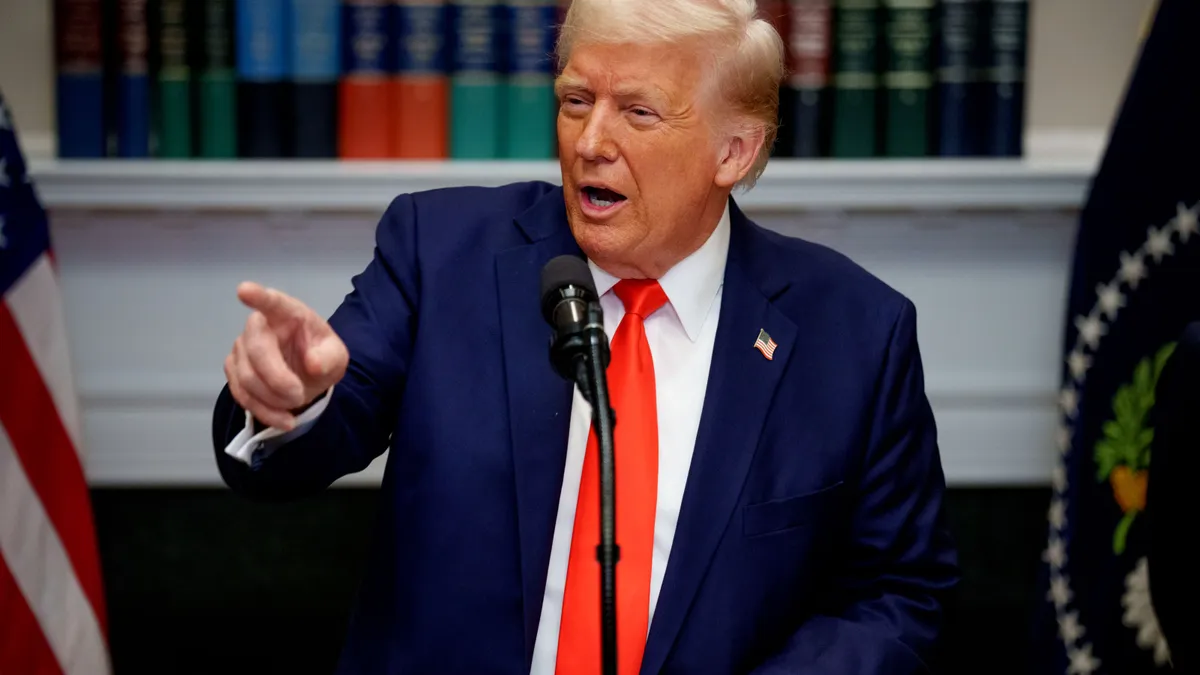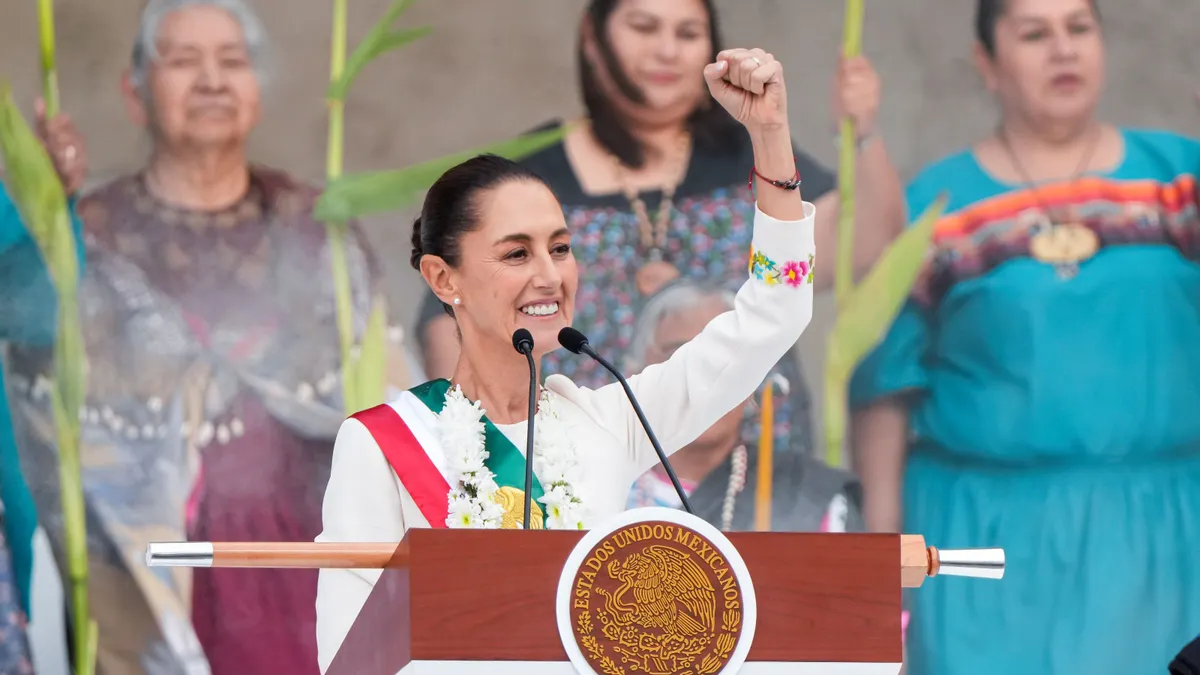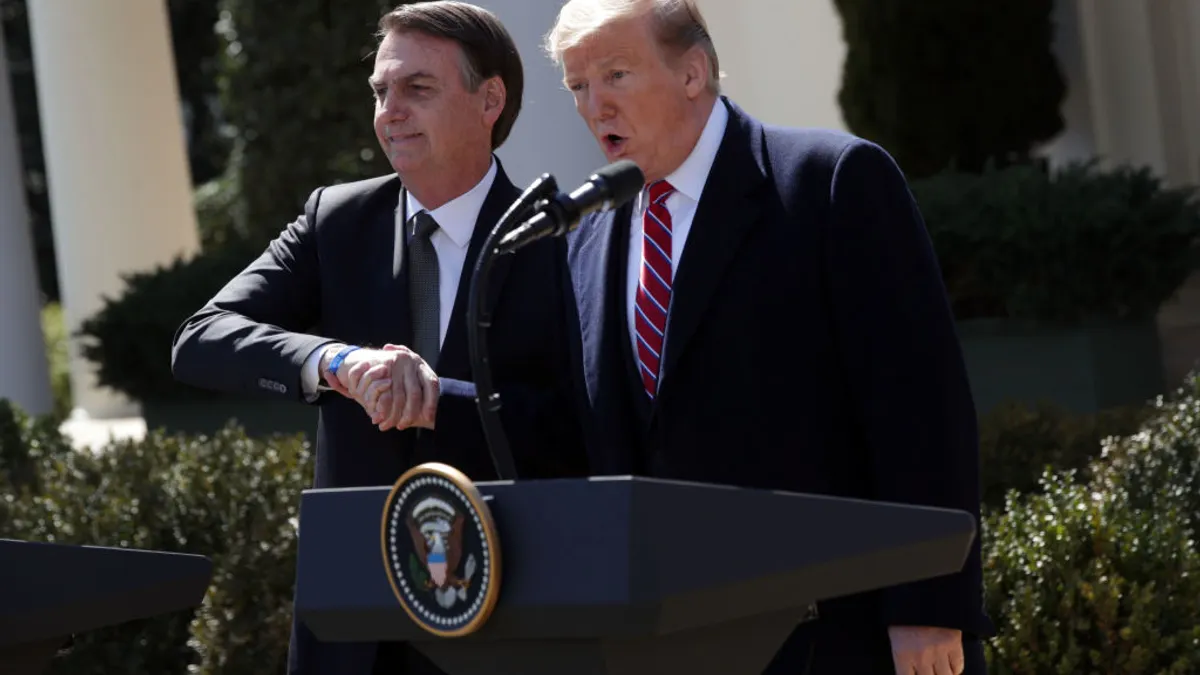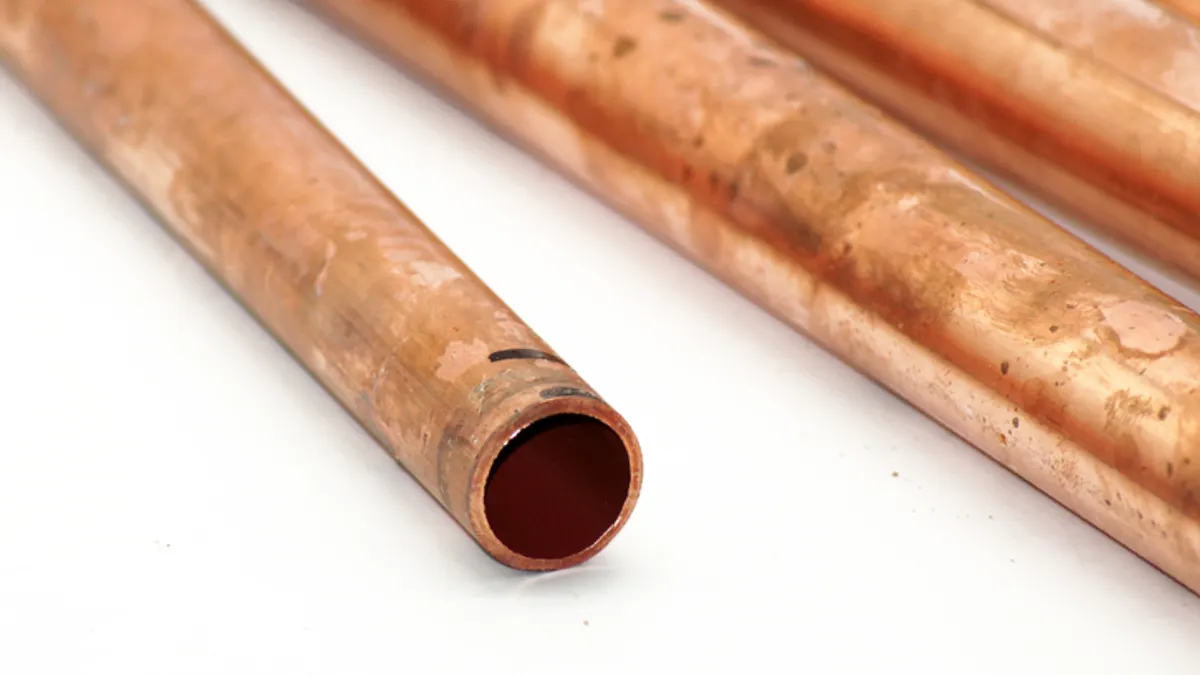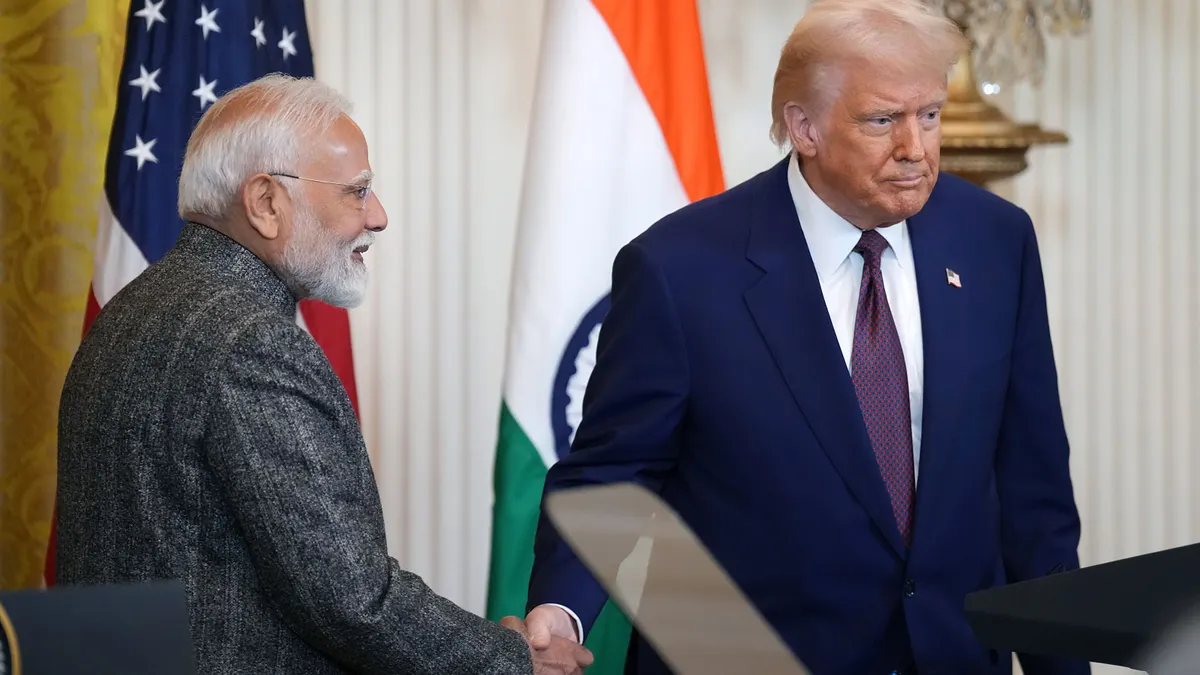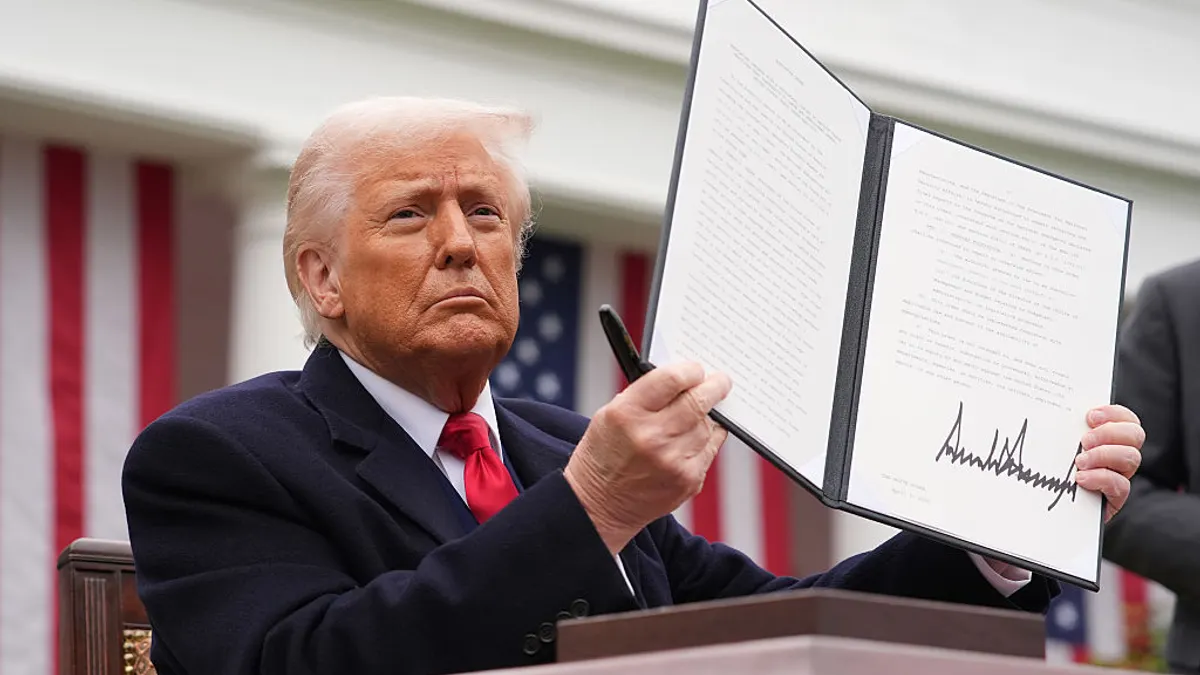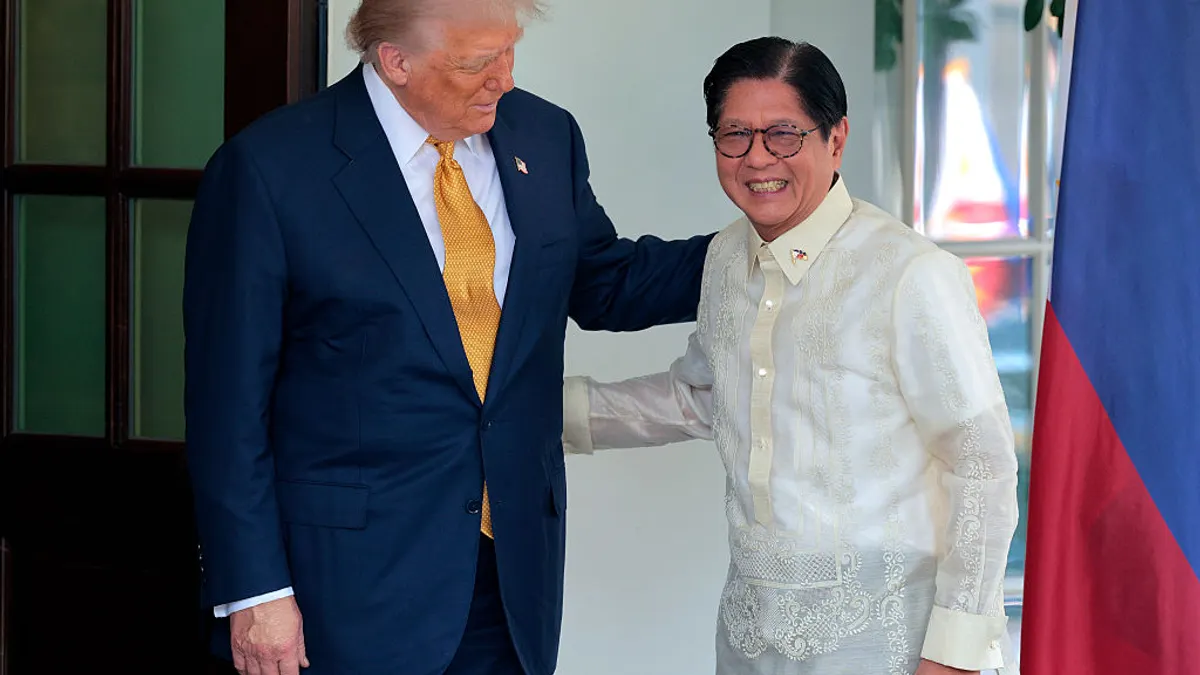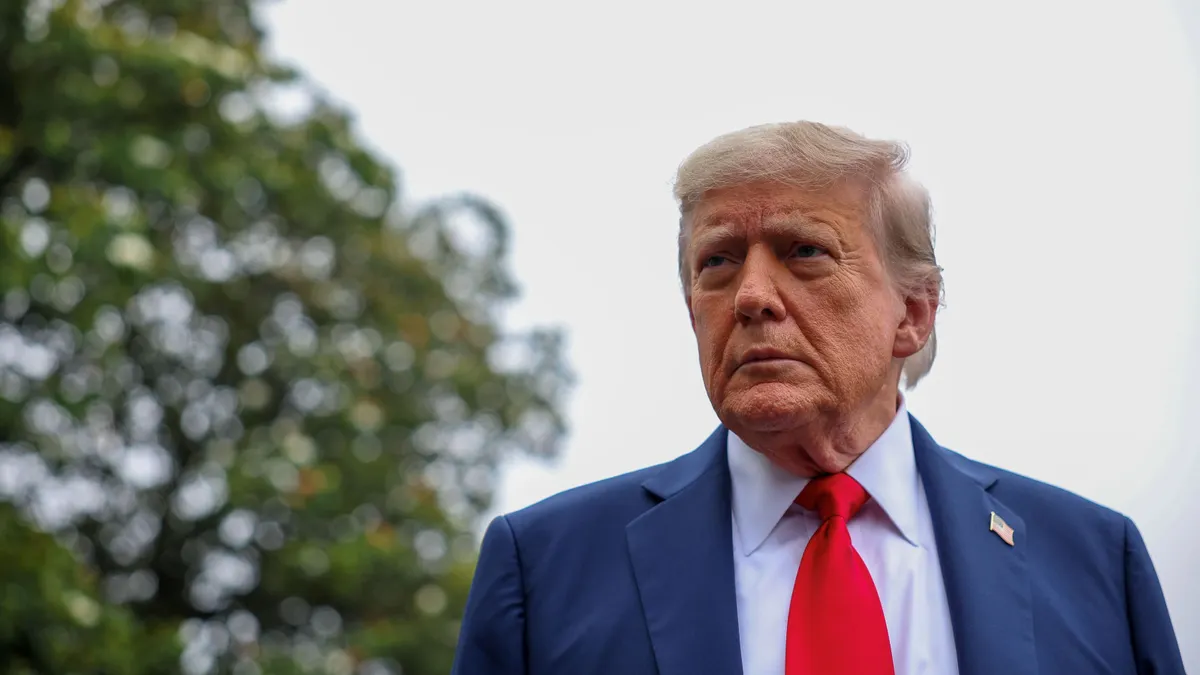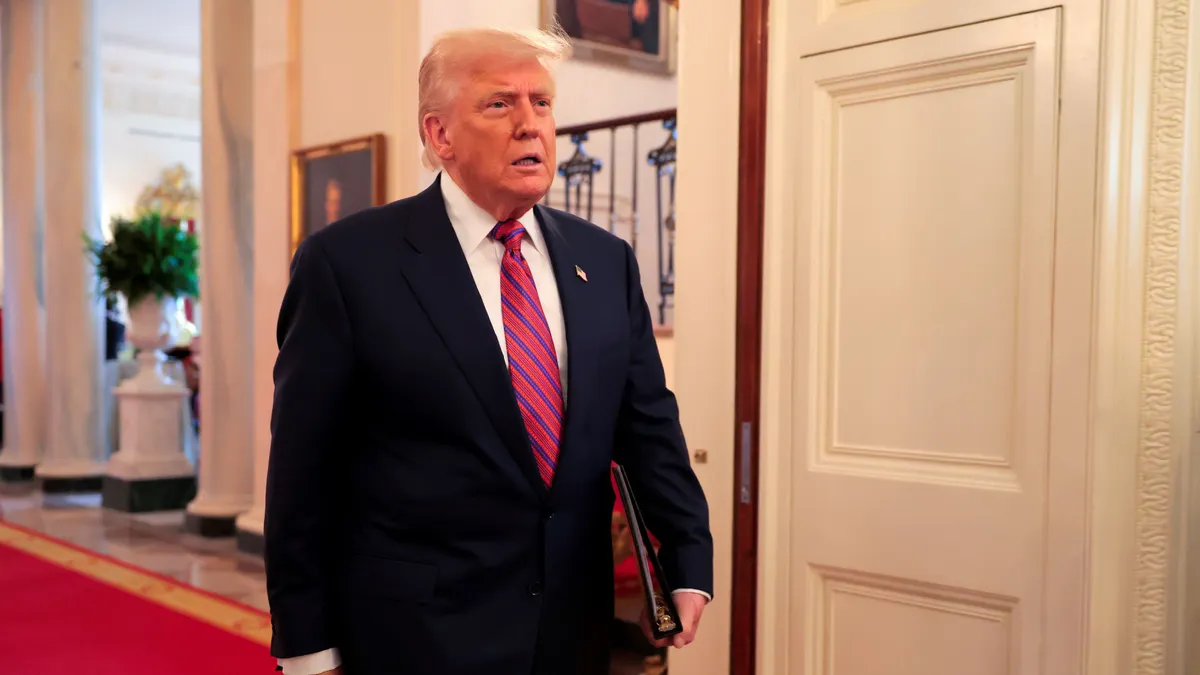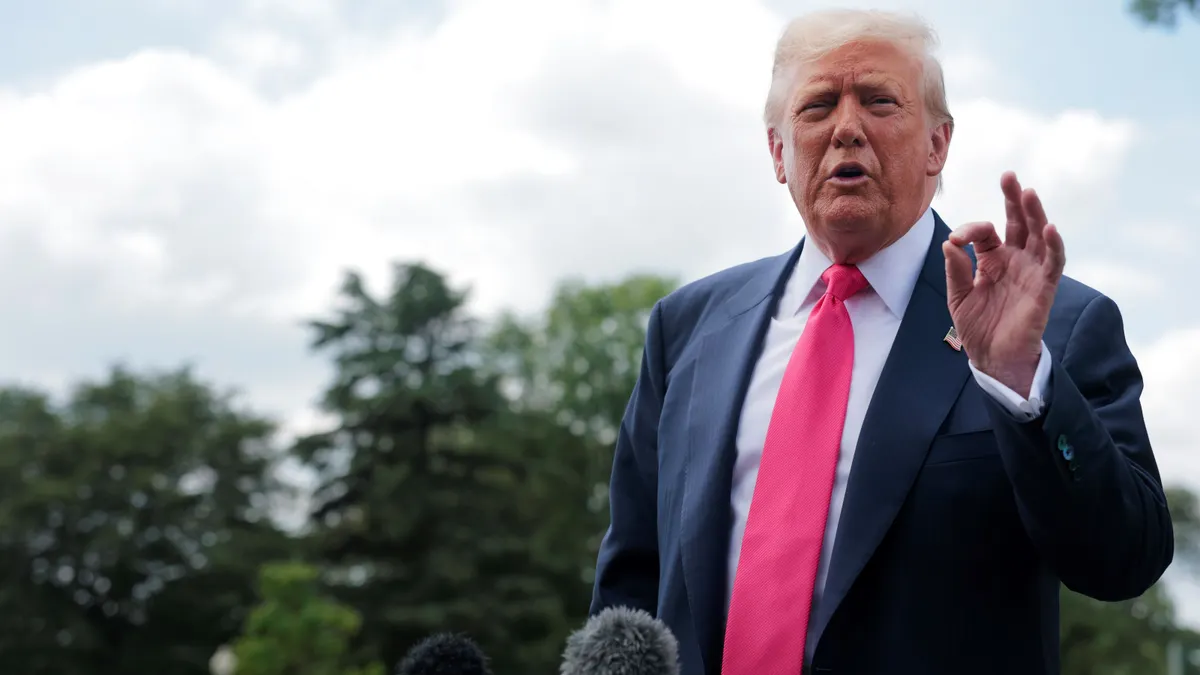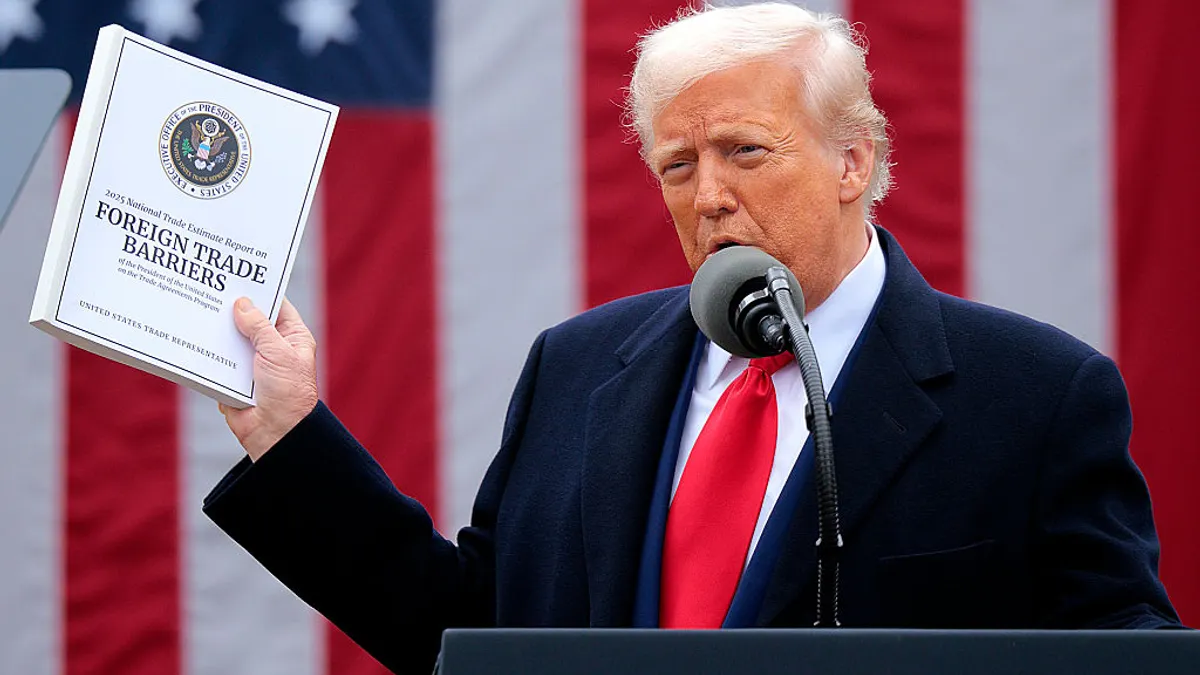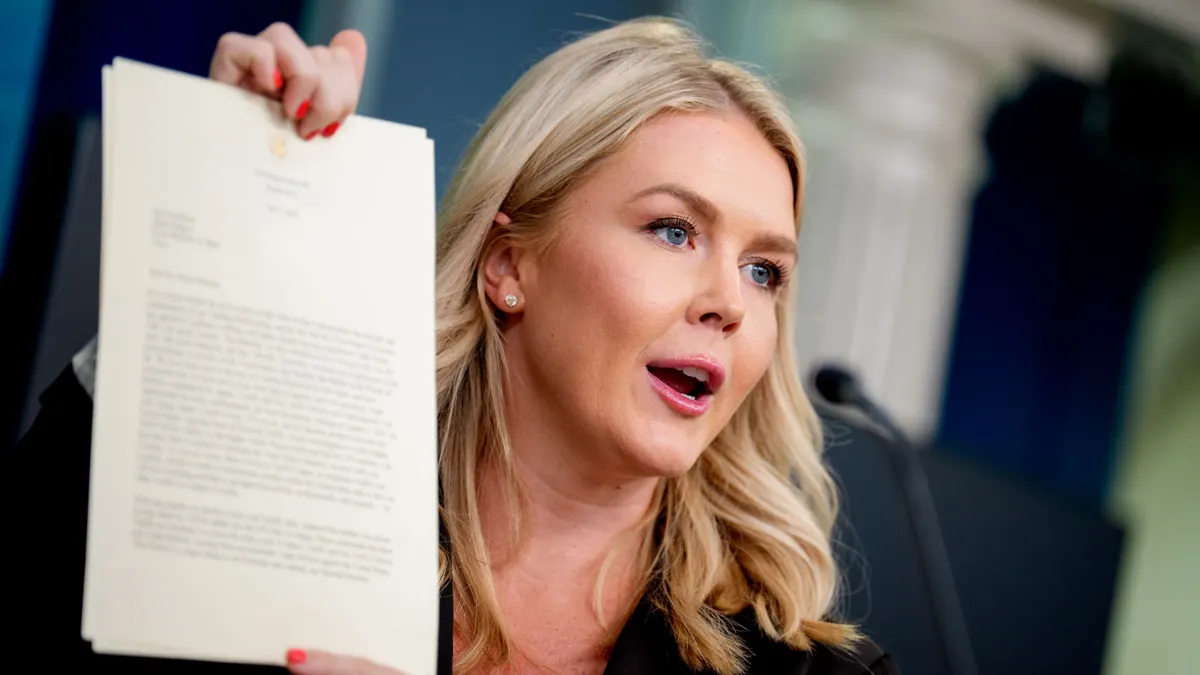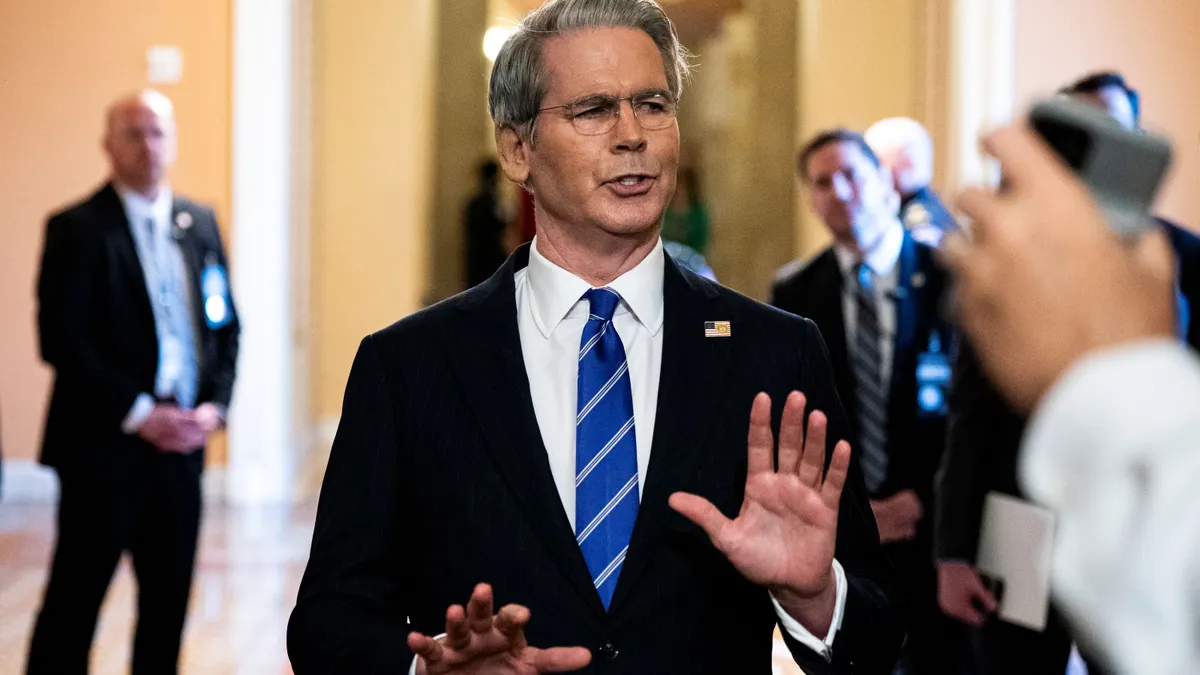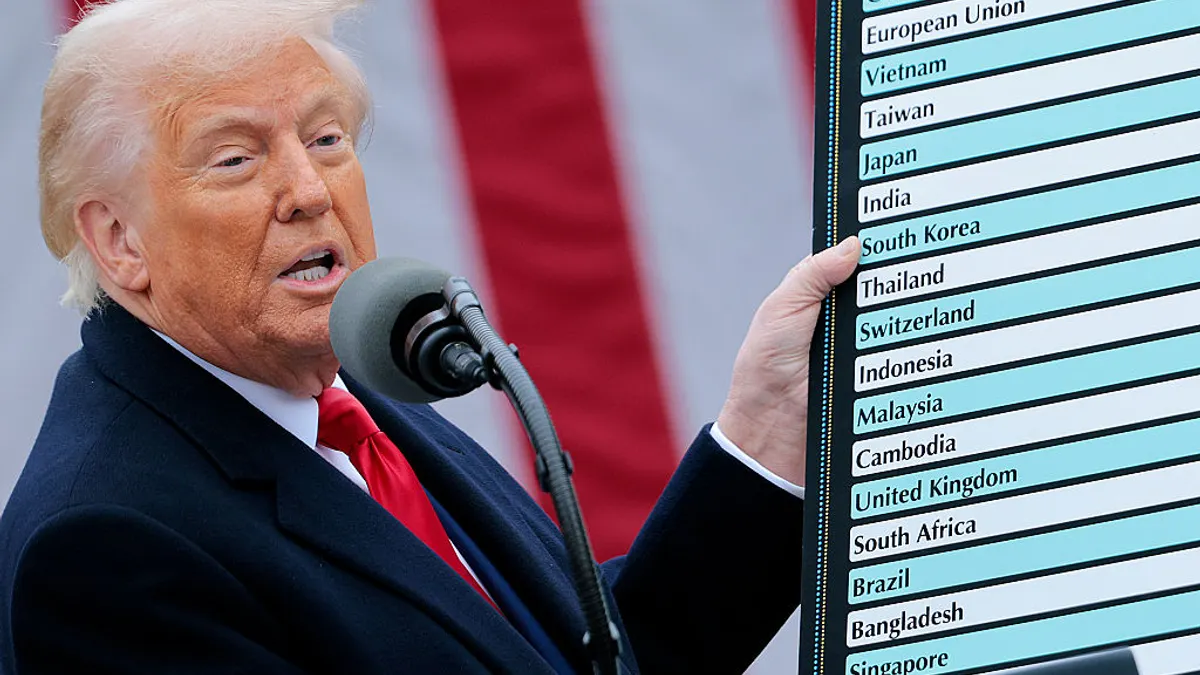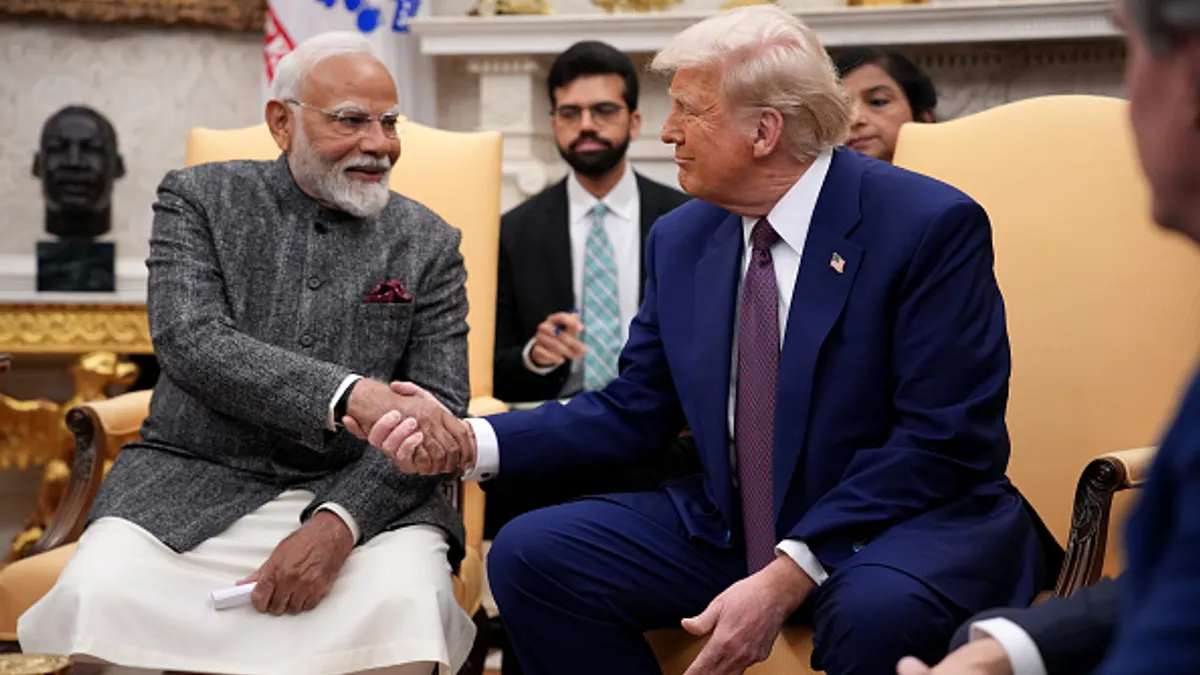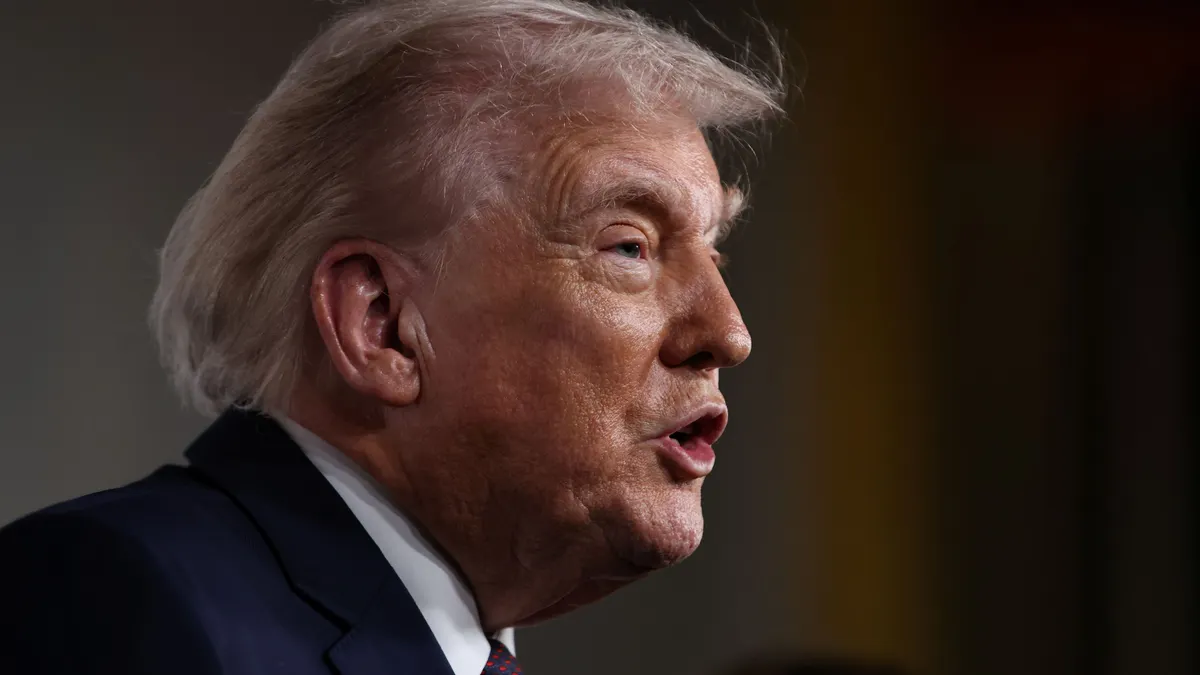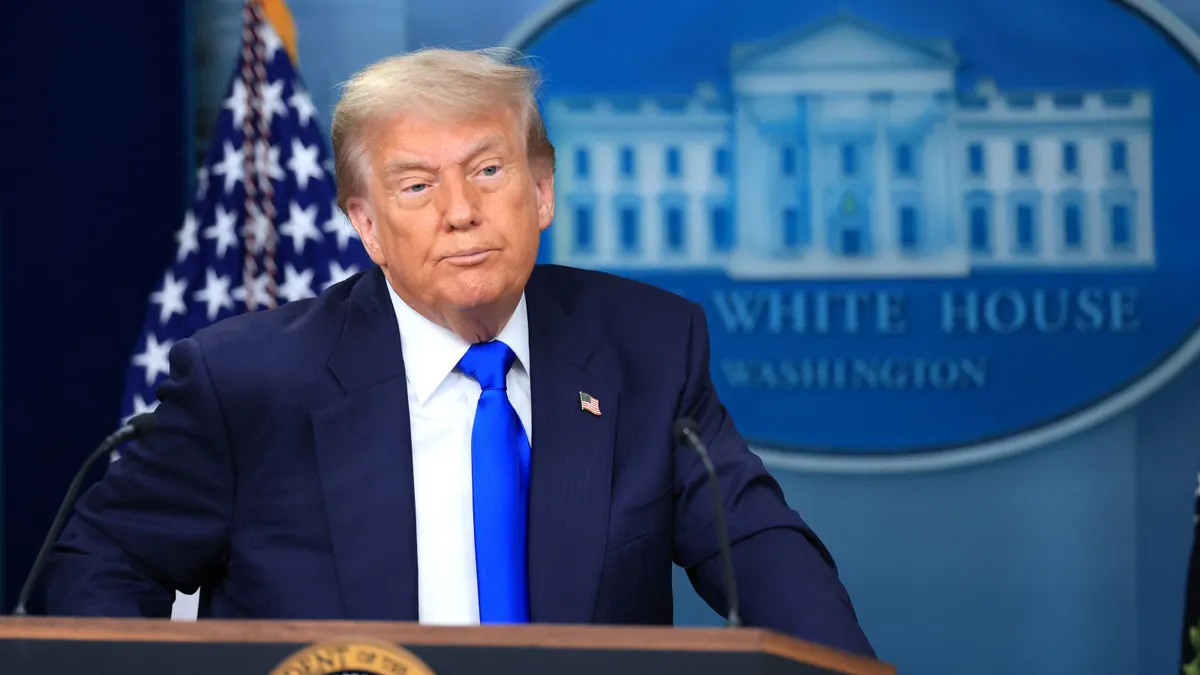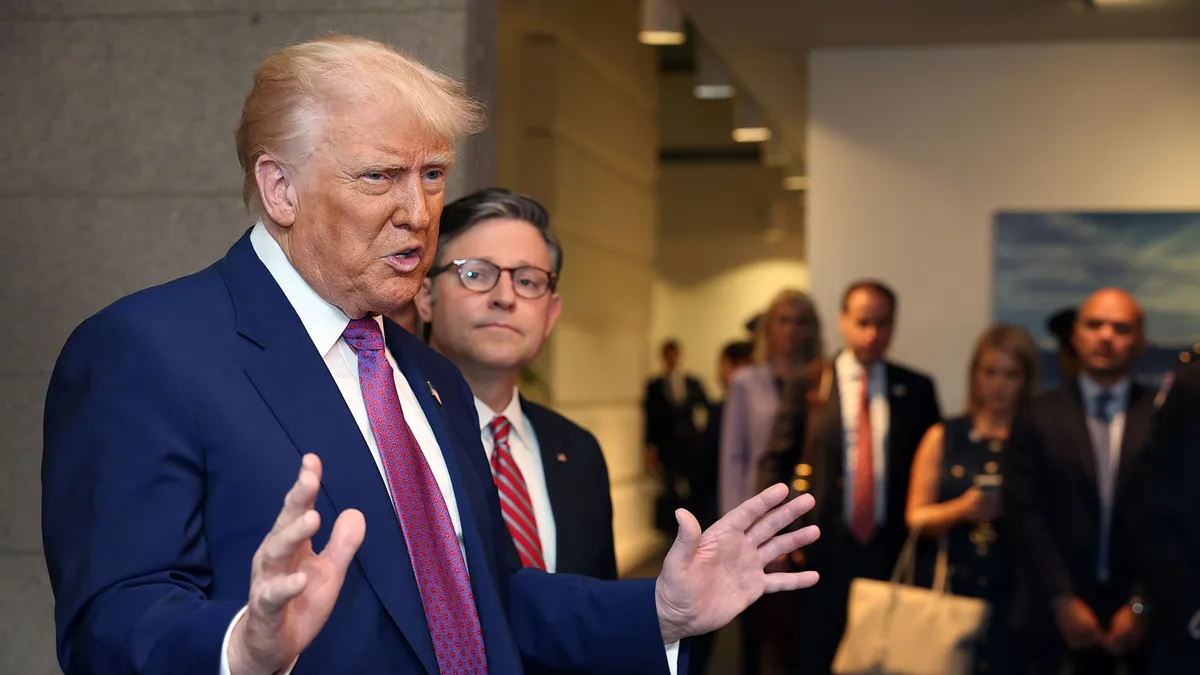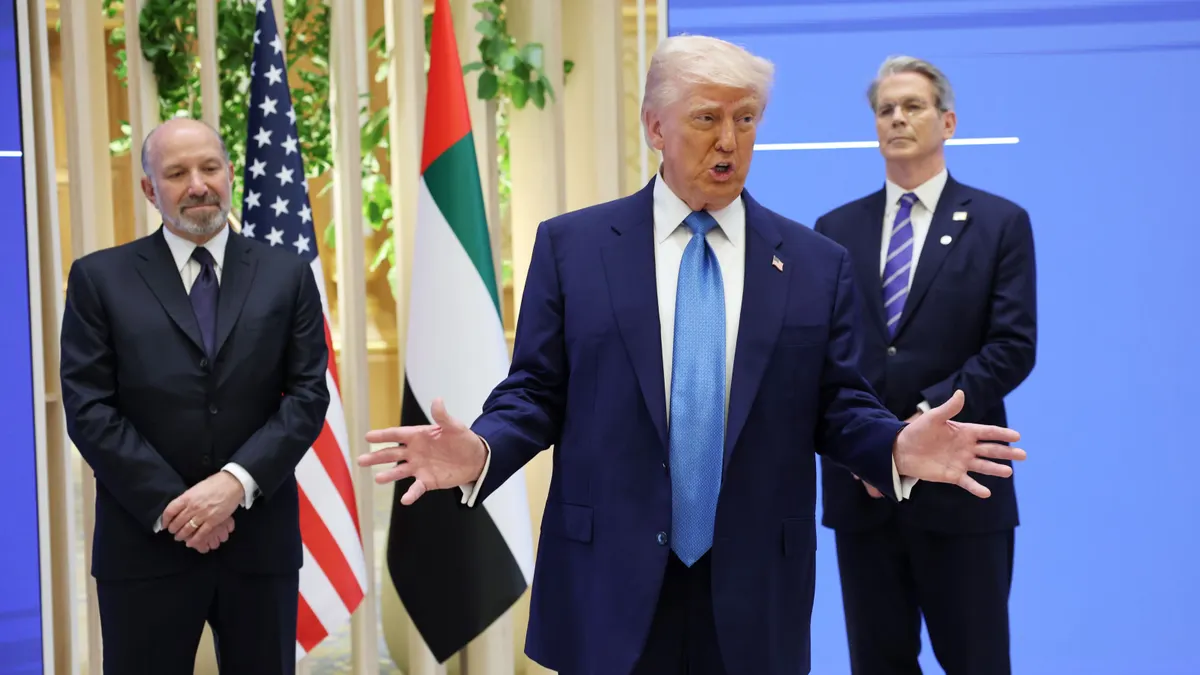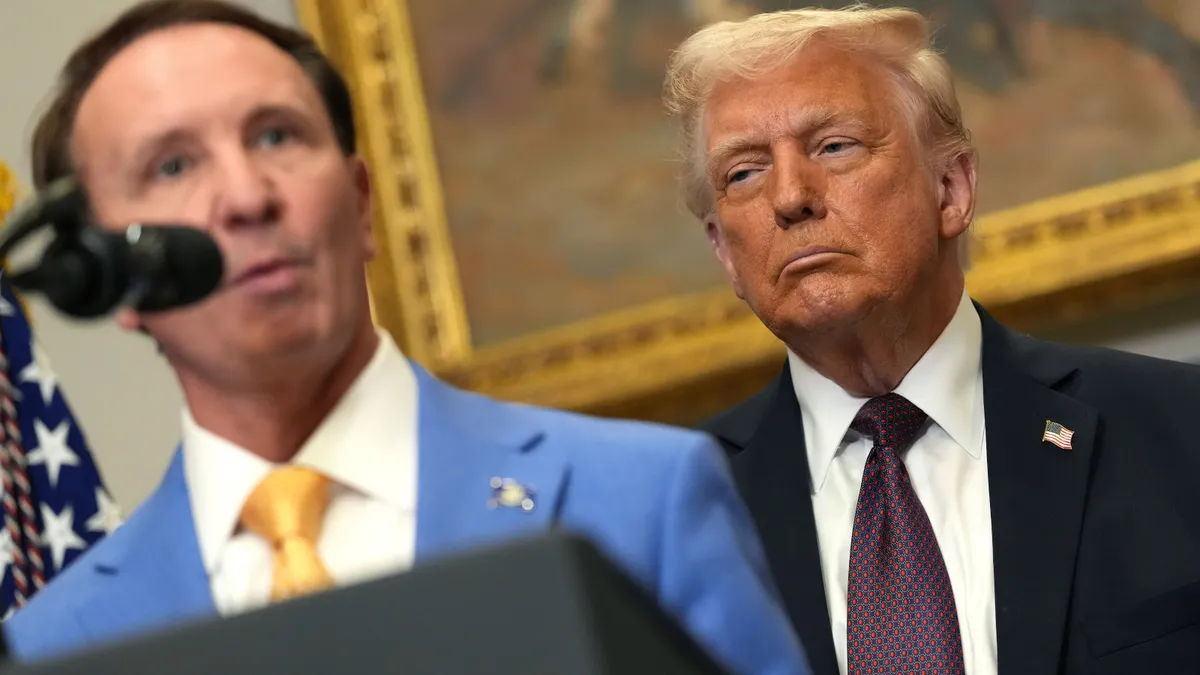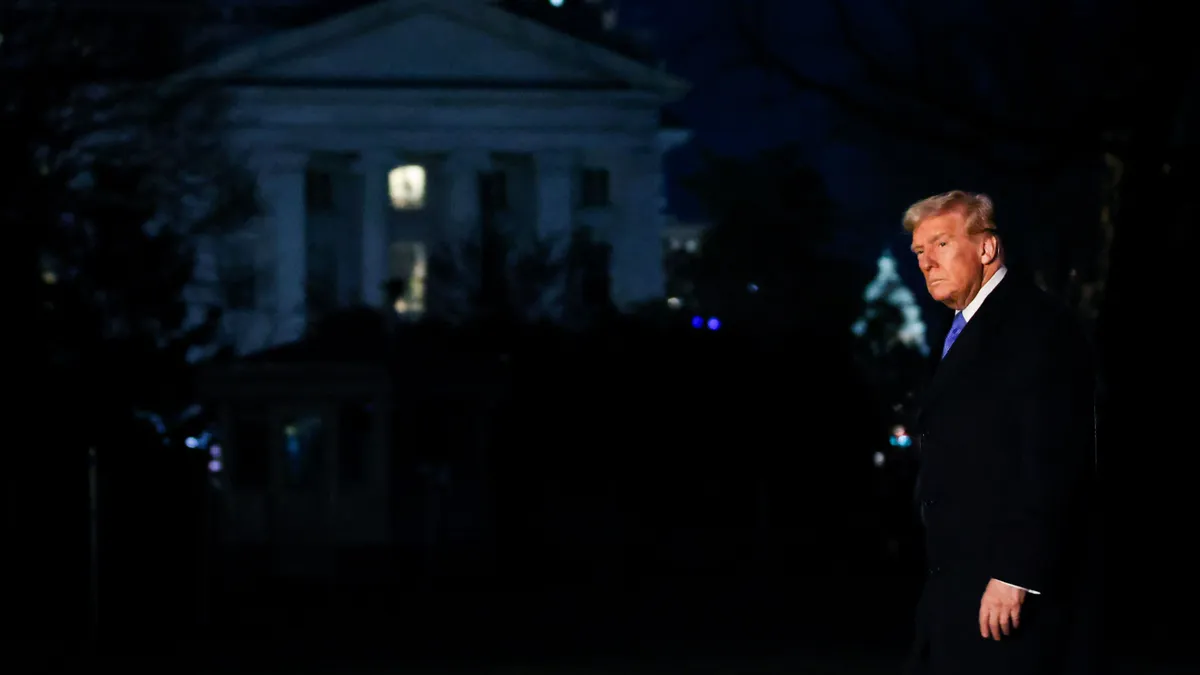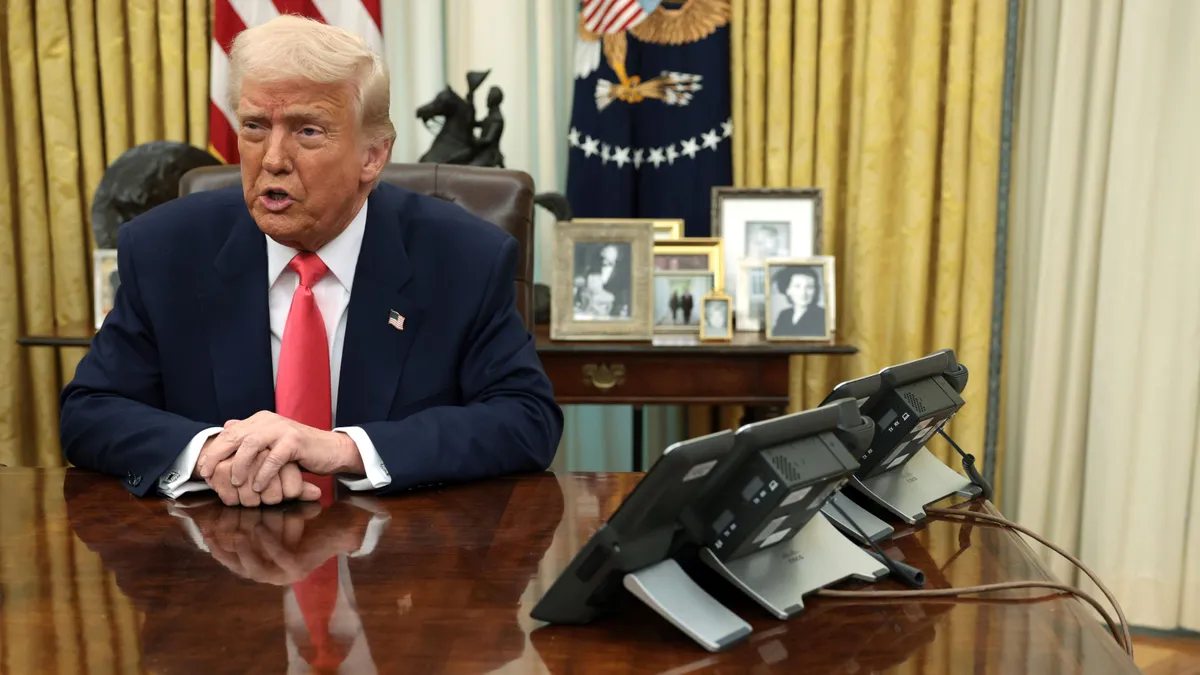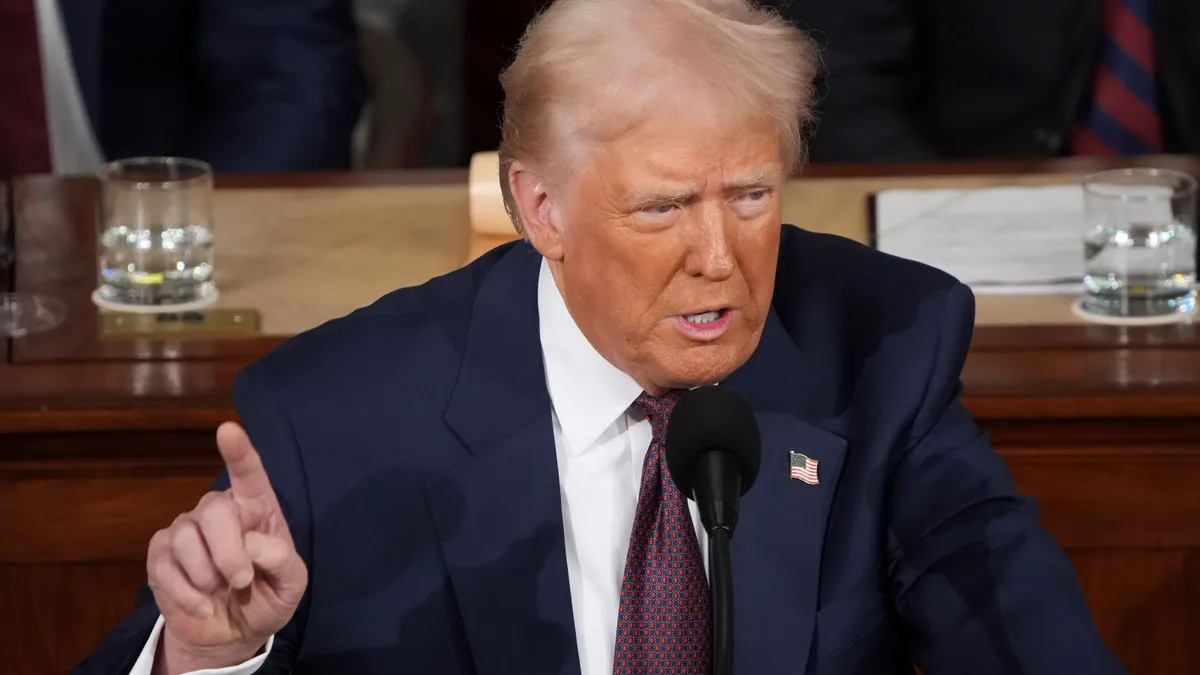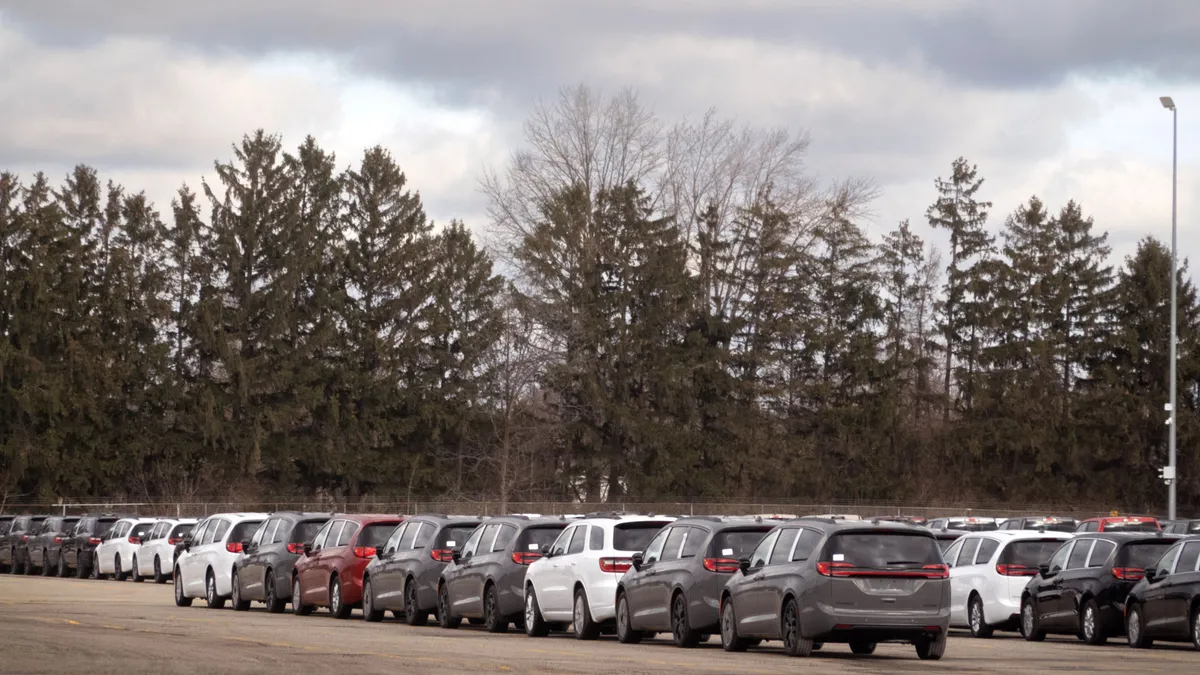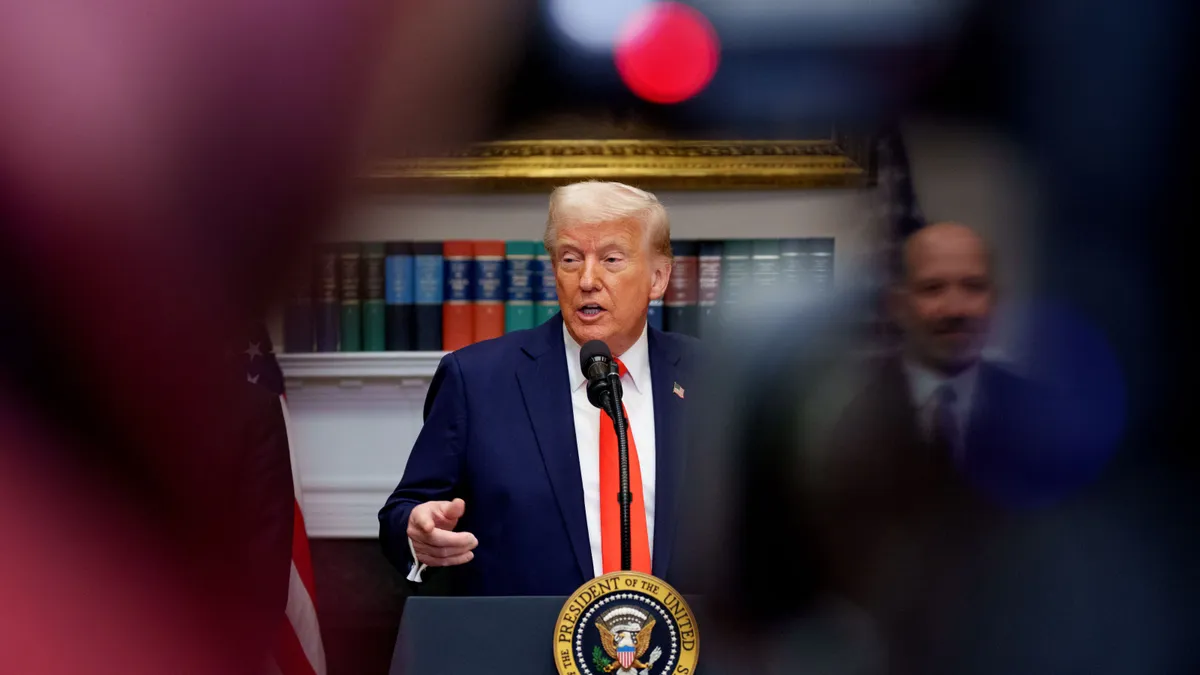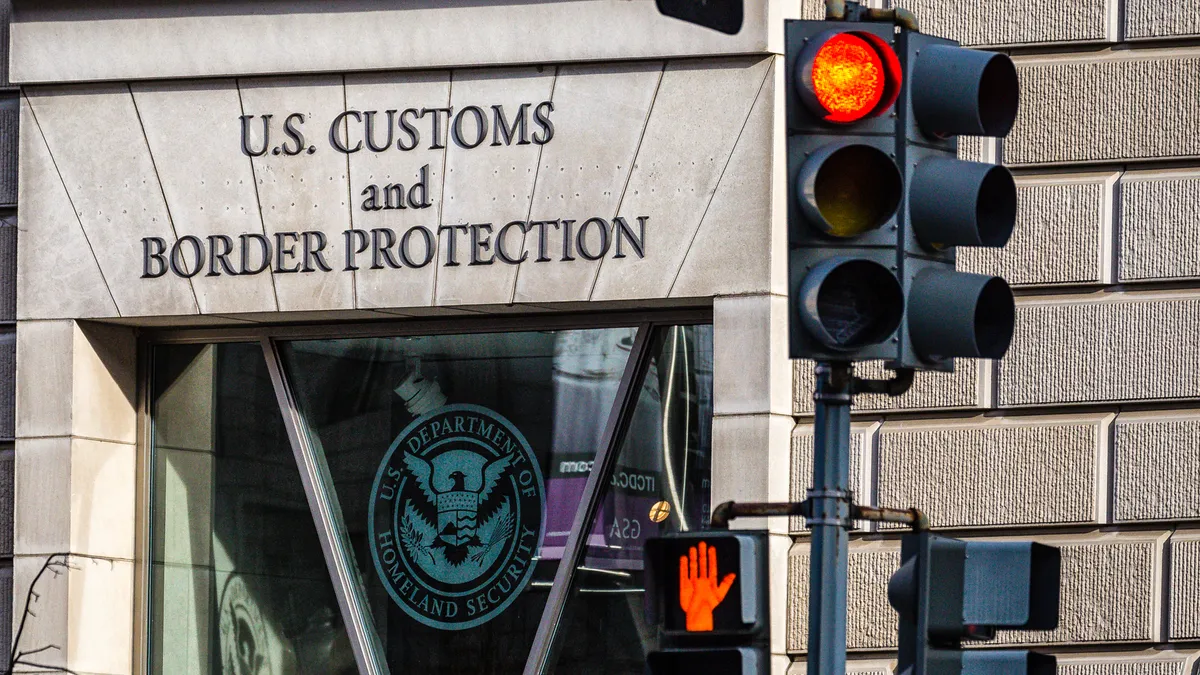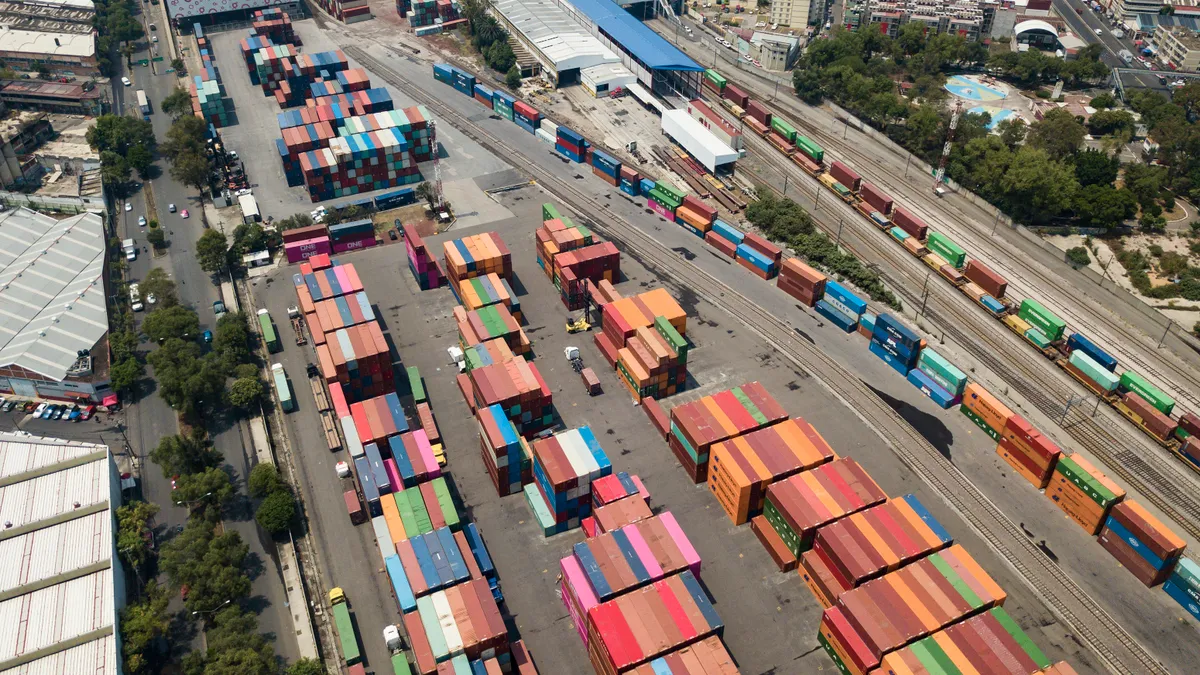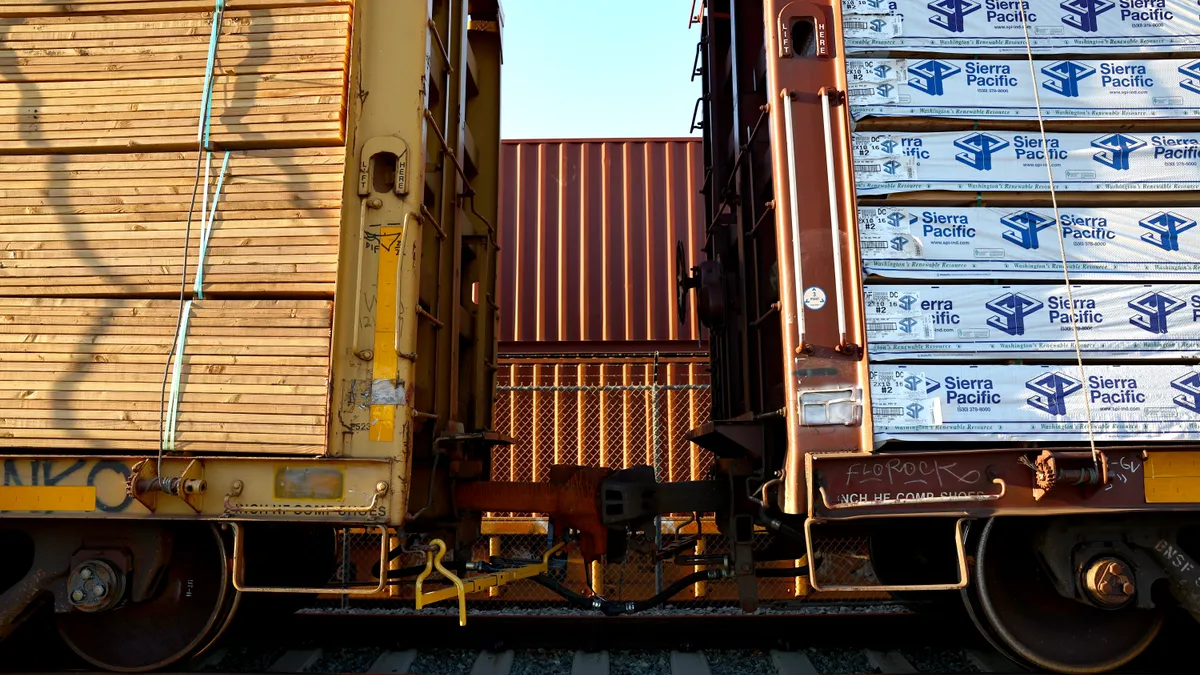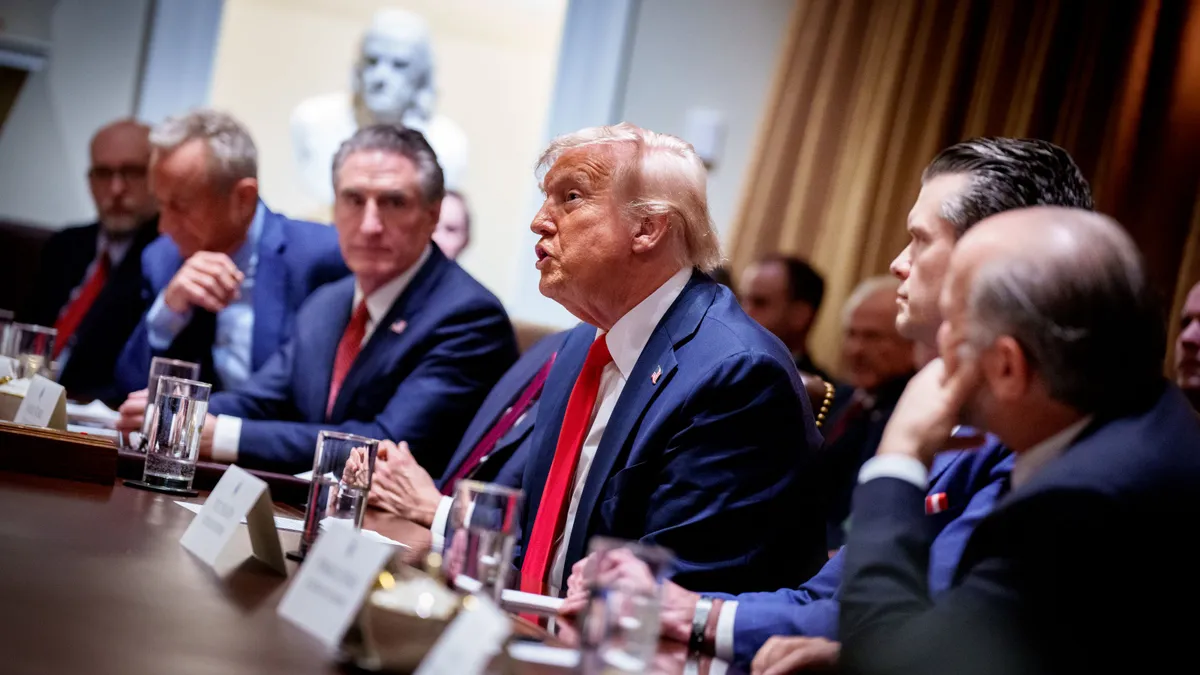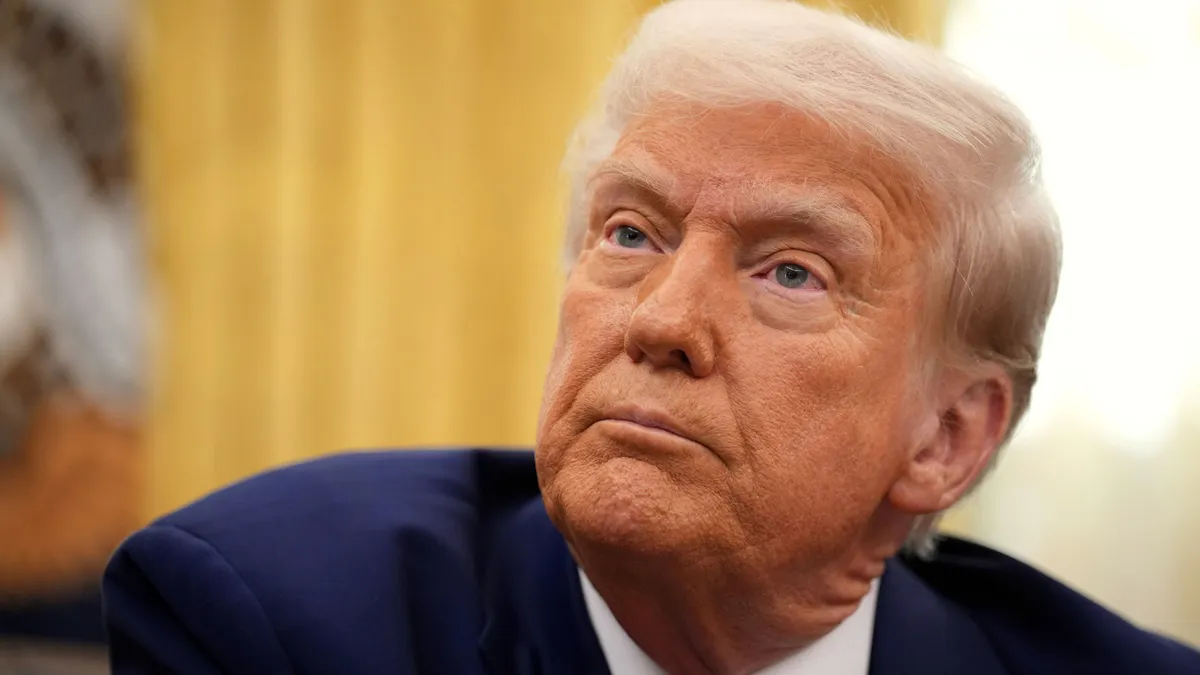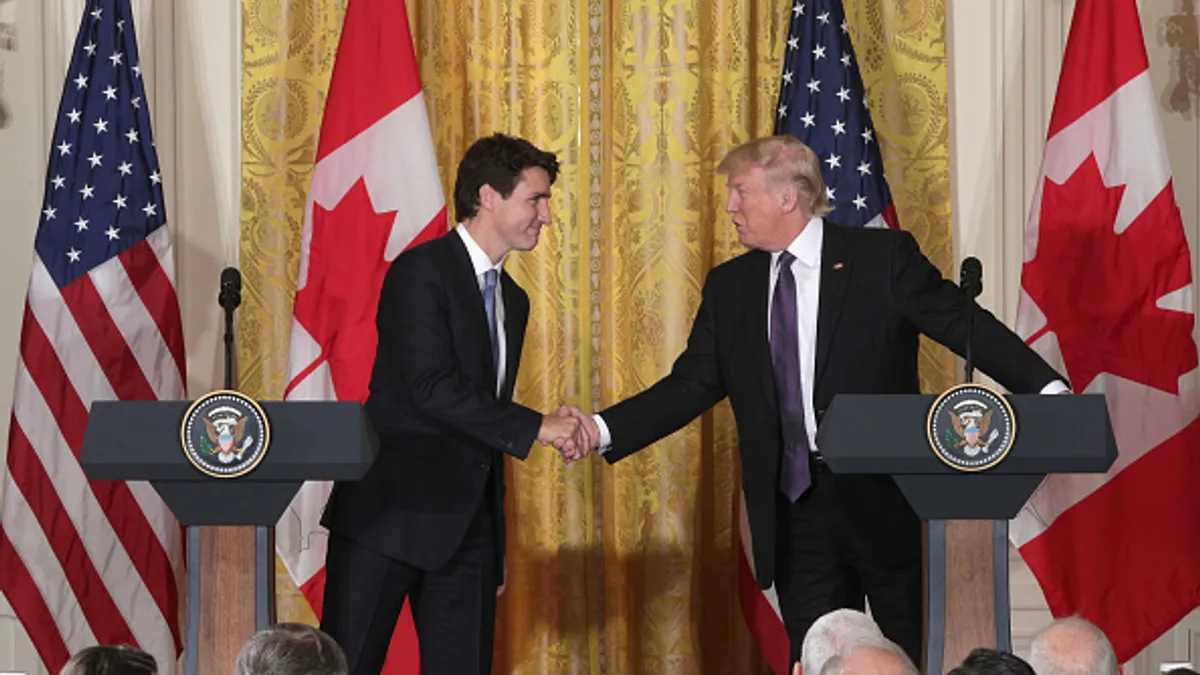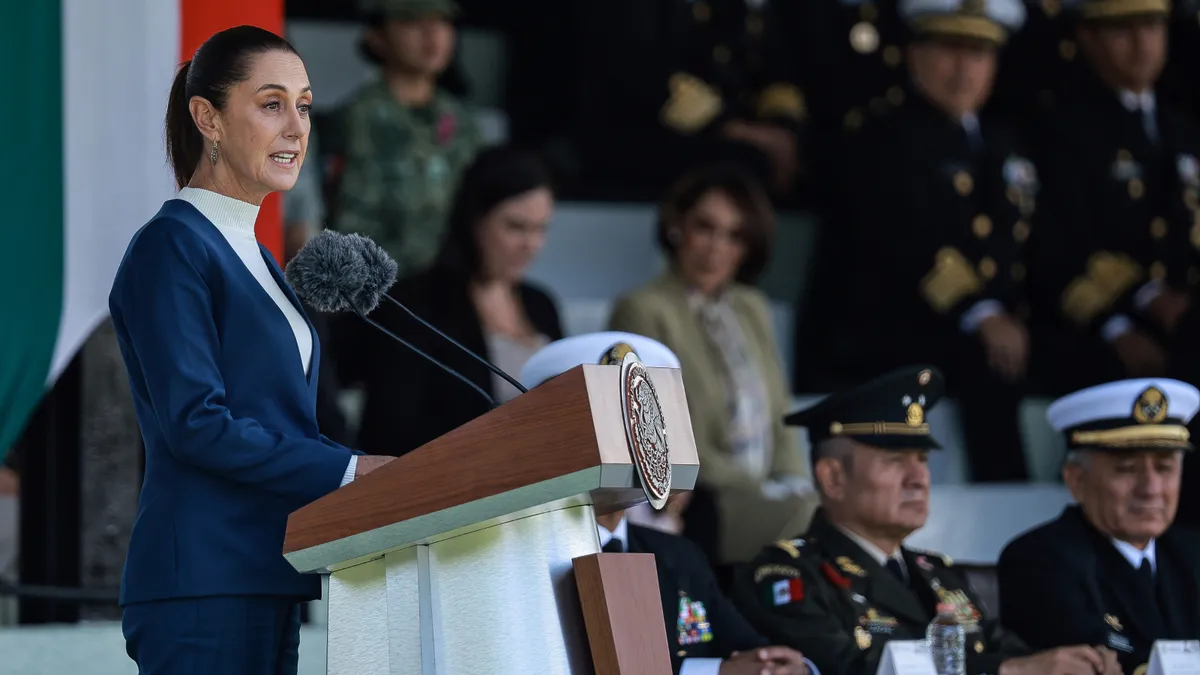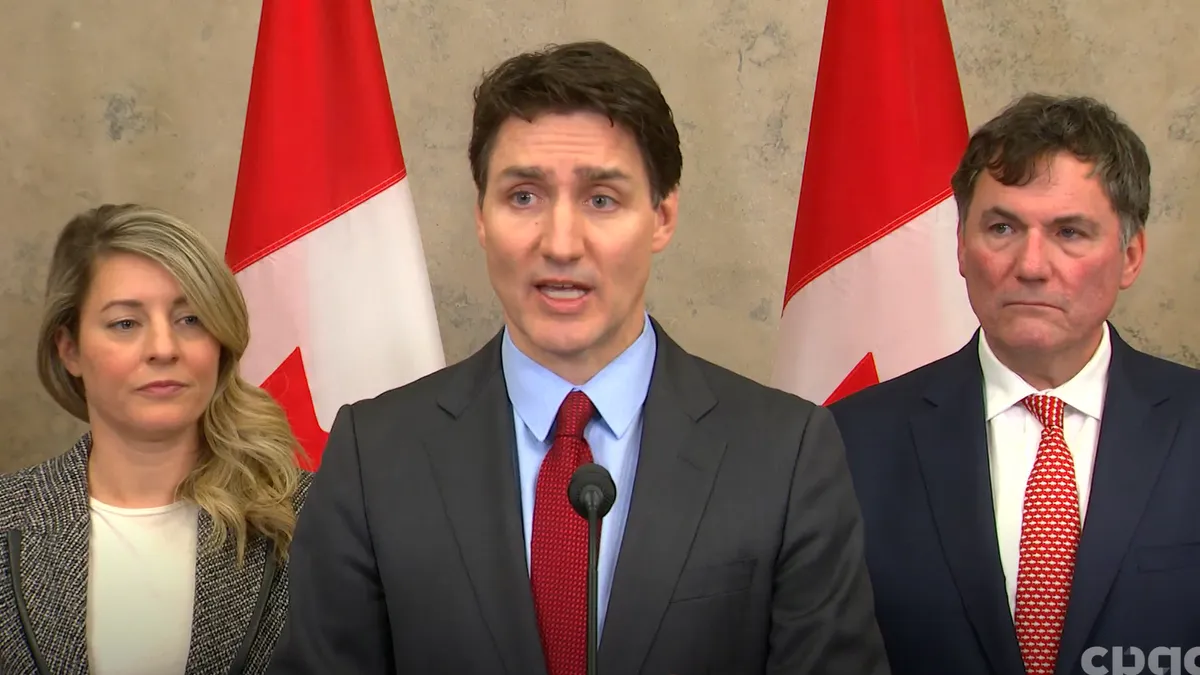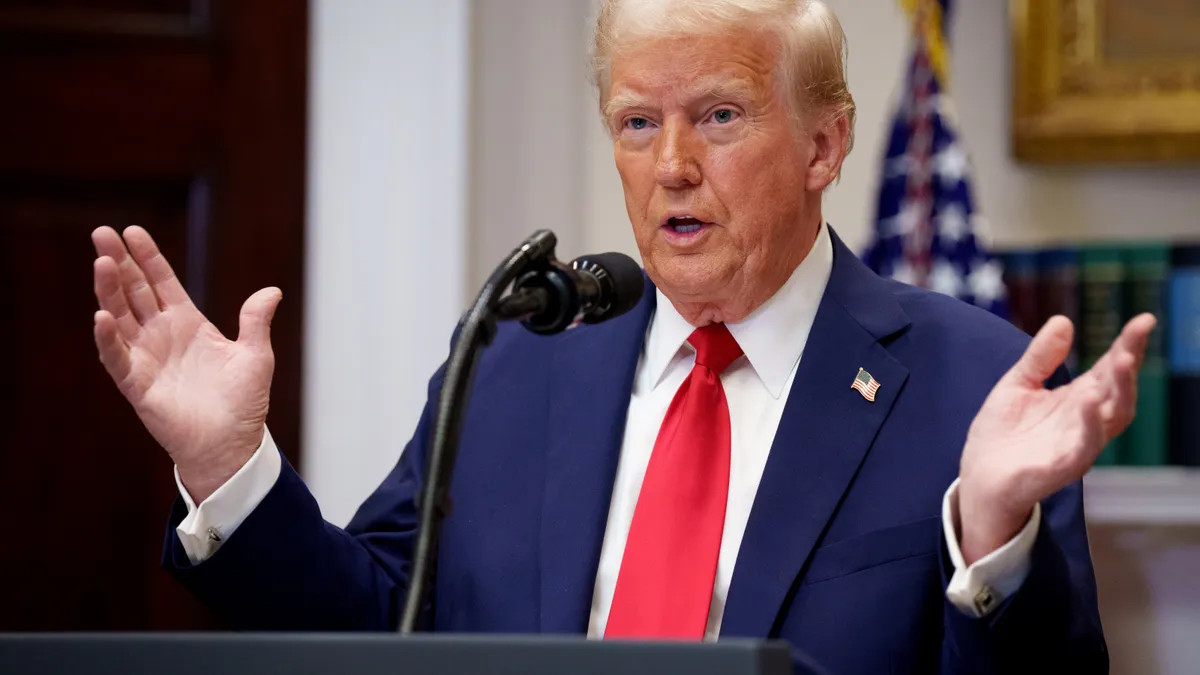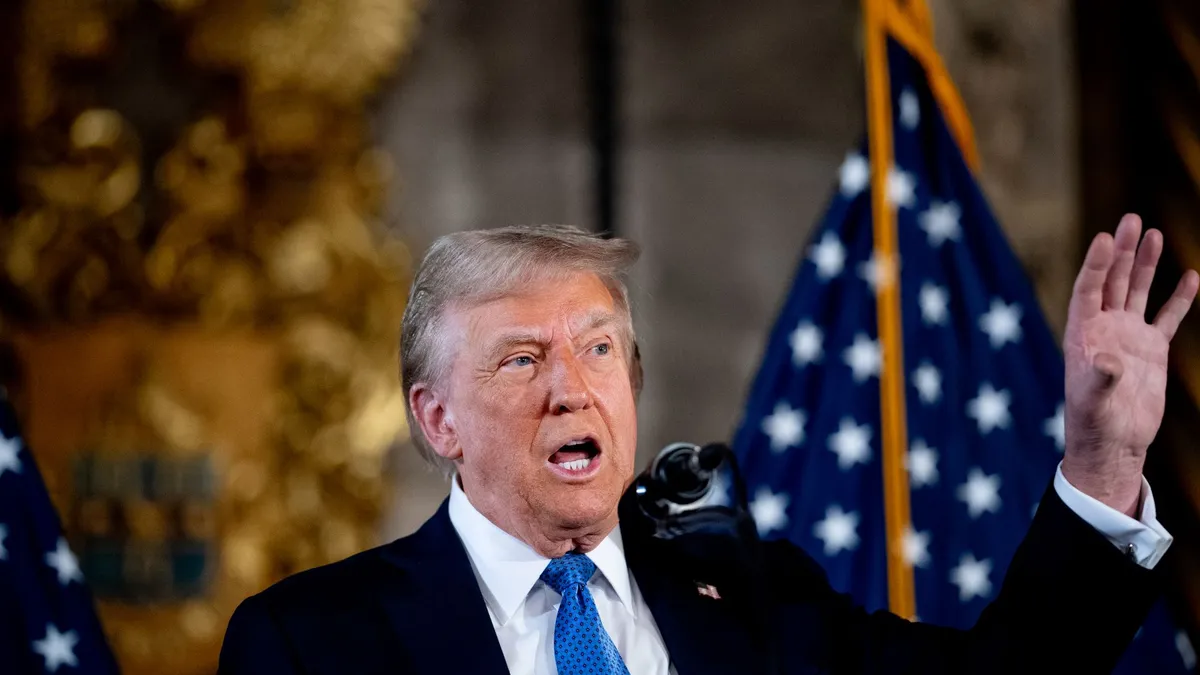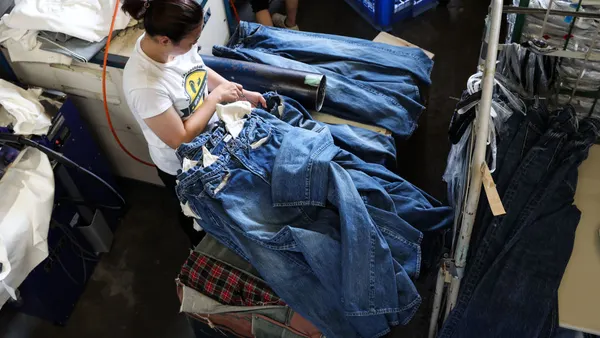The United States secured new framework trade agreements last week that would lower one of its highest country-specific tariff rates while allowing certain duty exemptions for four nations in Central and South America.
In a framework agreement with Switzerland and Liechtenstein, the U.S. said it would slash the current 39% tariff charged to imports of Switzerland that has been in place since early August.
Meanwhile, the White House also said it secured pacts with Argentina, Ecuador, El Salvador and Guatemala with a goal of boosting trade and securing supply chains in the Western Hemisphere. The U.S. plans to finalize the deals with the four countries in the coming weeks, per a White House fact sheet.
The announcements came the same week the U.S. formalized a trade-related agreement with South Korea, cementing provisions from a framework pact the two countries reached in July. The U.S. has also sealed a trade war truce with China and inked pacts with several other countries in Southeast Asia in recent weeks, adding to a roster of deals and frameworks with global trading partners.
Here’s a look at the most recent framework agreements with Argentina, Ecuador, El Salvador, Guatemala, and Switzerland and Liechtenstein.
Switzerland and Liechtenstein
The U.S. plans to cap tariffs on imports from Switzerland and Liechtenstein at 15% as part of a framework agreement between the three countries. The limit would also apply to potential future Section 232 duties on pharmaceuticals and semiconductors originating in Switzerland and Liechtenstein, per a joint statement published by the White House.
Goods from Switzerland had been subject to a 39% country-specific levy since Aug. 7, when Trump installed a slew of reciprocal tariffs. The framework maintains the duty rate Trump set for Liechtenstein at the time.
The countries aim to formalize the agreement by the first quarter of next year, according to the joint statement.
Should the deal be finalized, the two European nations would remove duties on all U.S. industrial goods, seafood and some agricultural products while applying tariff rate quotas on certain other agricultural imports, per the joint statement. The countries will also combine to invest $200.3 billion in the U.S. over the next five years, with Switzerland contributing $200 billion. One third of the investments are expected to be made in 2026.
Switzerland would also expand market access for U.S. cars, medical devices as well as certain meat and dairy products by adjusting certain regulatory restrictions and recognizing standards from U.S. agencies such as the Federal Motor Vehicle Safety Standards.
Argentina
As part of a framework agreement with Argentina, the U.S. said it would eliminate reciprocal tariffs for “certain unavailable natural resources” as well as non-patented materials used for pharmaceutical production. Imports from Argentina currently face a baseline 10% tariff rate.
Meanwhile, Argentina plans to expand market access for a swath of U.S. products, including medicine, chemicals, machinery, information technology goods, medical devices, motor vehicles and a range of agricultural products, including beef and poultry, per a joint statement published by the White House.
As part of the effort, Argentina would lift and simplify certain regulatory restrictions on U.S. exports. It also will accept imports of cars that meet U.S. Federal Motor Vehicle Safety Standards, along with medical devices and pharmaceuticals that meet Food and Drug Administration specifications.
The joint statement also indicates that the U.S. may consider provisions of the agreement when instituting future Section 232 levies, such as those already on sectors like steel and aluminum.
Argentina and the U.S. will now work to finalize the agreement, although no timeline for implementation has been established.
Ecuador
The U.S. and Ecuador settled on a framework for reciprocal trade that included Ecuador removing or reducing tariffs on agricultural exports to the U.S., according to a joint statement issued by the White House.
The South America country agreed to lower or eliminate tariffs on tree nuts, fresh fruit, pulses, wheat, wine, and distilled spirits, per a fact sheet. Ecuador also consented to eliminating a variable tariff on many agricultural products under the Andean Price Band System, which sets minimum and maximum prices for agricultural products imported by the Andean Community of Nations.
The framework includes Ecuador addressing non-tariff barriers for food and agricultural products and reforming its import licensing and facility registration systems to reduce barriers to U.S. agricultural exports, according to the joint statement.
Outside of the agricultural sector, Ecuador committed to reducing or removing tariffs on U.S. machinery, health products, information and communications technology, chemicals and motor vehicles, the statement said. In turn, the U.S. agreed to drop reciprocal tariffs on certain qualifying Ecuador exports that the U.S. cannot grow, mine or naturally produce in sufficient quantities.
El Salvador
The U.S. and El Salvador agreed to a reciprocal trade framework in which El Salvador committed to streamlining regulatory requirements and approvals for U.S. exports, including vehicles and automotive parts built to U.S. safety and emission standards, according to a joint statement issued by the White House. The Central America country also agreed to accept FDA certificates for medical devices and pharmaceuticals.
For agricultural products, El Salvador agreed to ensure that U.S. exporters are not restricted due to the use of certain cheese and meat terms, per a fact sheet.
For its part, the U.S. will remove reciprocal tariffs on El Salvador exports that cannot be grown, mined or naturally produced in the U.S. in sufficient quantities, and on textiles and apparel originating under the Dominican Republic-Central America Free Trade Agreement, according to the joint statement.
Guatemala
The U.S. and Guatemala agreed to a reciprocal trade framework that aims to reduce trade barriers, support regulatory cooperation and boost agricultural trade, according to a joint statement issued by the White House.
Guatemala agreed to address non-tariff barriers, including streamlining regulatory requirements and approvals for U.S. pharmaceutical products and medical devices, per the statement. The Central America country also agreed to remove import restrictions on remanufactured goods and accept U.S. auto standards.
Regarding agriculture, Guatemala committed to preventing barriers to U.S. products in its market and maintaining science- and risk-based regulatory frameworks, according to the statement. The country also agreed not to restrict market access due to the use of certain cheese and meat terms.
For its part, the U.S. agreed to remove reciprocal tariffs from textiles and apparel originating under the DR-CAFTA, a provision similar to the one in the El Salvador agreement, a fact sheet said.



